Around the States: Recent News Stories
July 26, 2024 News Stories
- Michigan Cannabis Regulatory Agency Asks for Clearer Guidance on Marijuana Changes
- Credit Union’s Internal Investigation Leads to Employee Grand Theft Charge
- WCUC24: How AI Will Make Credit Union Examiner Meetings More Efficient…
- Credit Union Helps Members Expand Solar Energy
Michigan Cannabis Regulatory Agency Asks for Clearer Guidance on Marijuana Changes
 Adrienne Roberts, Detroit Free Press
Adrienne Roberts, Detroit Free Press
Michigan’s Cannabis Regulatory Agency on Monday laid out how the Drug Enforcement Administration’s plan to change the classification of marijuana from a Schedule I to a Schedule III drug could benefit Michigan consumers and cannabis companies, from potentially allowing businesses to file for bankruptcy to offering consumers products that meet uniform safety standards.
However, the agency said guidance from the federal government is crucial to understanding how to move forward if cannabis is reclassified as a Schedule III drug.
“Rescheduling marijuana from Schedule I to Schedule III can have profound impacts on both the medical and adult-use markets, potentially transforming how these markets operate and are perceived, but will do little good — and could potentially wreak havoc on Michigan’s existing programs — without clear guidance from all areas of the federal government explaining the effects of rescheduling,” the CRA’s comment said. It was submitted during the public comment period that is part of the DEA’s plan to recategorize marijuana under the Controlled Substances Act. Read more
Credit Union’s Internal Investigation Leads to Employee Grand Theft Charge
Peter Strozniak, CUTimes
 Macey Wymore, who allegedly stole more than $63,000 from Idaho Central CU, is expected to appear in court in August.
Macey Wymore, who allegedly stole more than $63,000 from Idaho Central CU, is expected to appear in court in August.
A former employee who allegedly stole more than $63,000 from the $11 billion Idaho Central Credit Union (ICCU) in Chubbuck planned to steal an additional $23,000 but returned it after learning of an unexpected audit, according to a police probable cause affidavit.
After that audit and an internal investigation led by ICCU Vice President of Branch Performance Josh Ross, Lewistown Police Department investigators arrested Macey L. Wymore, 31, of Clarkston, who has been charged with grand theft. She was released on a $10,000 bond. Wymore is expected to appear in court for a preliminary conference in August, the Nez Perce County Prosecutor’s office said.
ICCU’s internal investigation determined there were shortages of cash from the vault and an electronic dispenser note accepter (EDNA) at the Lewiston branch. The credit union’s investigation included reviewing surveillance footage from inside the branch, reviewing logs from the vault/EDNA machines and interviewing employees.
From December 2023 to June 2024, Wymore allegedly stole $63,400.
“There was video evidence of an additional attempted theft of more than $20,000, however, Wymore returned that cash the following day when she learned of an unexpected audit,” according to the police affidavit. “Wymore volunteered to come to work, despite it not being her regularly scheduled time to work, to assist with the audit. Wymore returned the money during that time.”
The affidavit did not identify Wymore’s job title or her responsibilities at the credit union’s branch. She was fired in June. Read more
WCUC24: How AI Will Make Credit Union Examiner Meetings More Efficient…
CUbroadcast
Brett Wooden, FI Software Strategiest at Buildable, and Miles Oliveira, Sales Director at Buildable, stopped by the show to share how AI can help, among a myriad of things, credit union examiner meetings become incredibly more efficient for both the credit union and the examiner.
Both Brett and Miles talked about how Buildable’s AI Knowledge Base and AI Vendor Management Software can help credit unions dive into this space with full awareness of its benefits and capabilities — and how it can practically be used at credit unions. In addition, they addressed how developing this software with small credit unions can make them stronger and more capable of serving members in a digital age.
Credit Union Helps Members Expand Solar Energy
Jim DuPlessis, CUTimes
Clearwater FCU offers a CD that funds clean energy projects for its western Montana members.
A Montana credit union is offering members a way to help expand the clean energy network in their area even if they don’t own the roof over their head to place a solar panel.
Clearwater Federal Credit Union of Missoula, Mont. ($1.1 billion in assets, 60,922 members) on July 18 began offering a Clean Energy Certificate of Deposit. The credit union’s news release said its 24-month CD provides its western Montana members with rates it describes as “market competitive,” while restricting the funds provided by the member to solar loans and similar projects.
Clearwater designates the pooled deposits to fund loans for clean energy initiatives it said are intended to help Montana homeowners and businesses improve energy efficiency, reduce environmental impact and help build a clean energy economy. Read more
July 19, 2024 News Stories
- DFI Launches Statewide AD Campaign to Highlight How to Identify, Prevent, and Report Financial Fraud in Washington State
- Vibrant Credit Union in Illinois Explores a Blockchain-Based Future
- International Credit Union (ICU) Day® 2024 to Focus on ‘One World Through Cooperative Finance’
- MSUFCU Annual Kids Day Provides Fun and Financial Education
DFI Launches Statewide AD Campaign to Highlight How to Identify, Prevent, and Report Financial Fraud in Washington State
“$10 Billion Reasons” ad campaign created in response to uptick in fraud complaints and FTC data indicating Americans lost $10 Billion to financial fraud in 2023
 The Washington State Department of Financial Institutions (DFI) launches a statewide advertising campaign – “$10 Billion Reasons” – to encourage people to learn how to identify, prevent and report financial fraud. According to the Federal Trade Commission, consumers reported losing more than $10 billion dollars to fraud in 2023. Consumers reported losing more money to investment scams — more than 4.6 billion — more than any other category of fraud.
The Washington State Department of Financial Institutions (DFI) launches a statewide advertising campaign – “$10 Billion Reasons” – to encourage people to learn how to identify, prevent and report financial fraud. According to the Federal Trade Commission, consumers reported losing more than $10 billion dollars to fraud in 2023. Consumers reported losing more money to investment scams — more than 4.6 billion — more than any other category of fraud.
In looking at the FTC data), it’s clear that no demographic is immune. This is why DFI’s goal is to reach multiple demographics with the “$10 Billion Reasons” campaign.
“Using a variety of media, including billboards, movie theater screen ads, radio, streaming, social media, print media, online news sites, and more – we are hoping to drive home the message that fraud is expensive and stress the importance of learning how to identify, prevent and report fraud to DFI,” DFI Director Charlie Clark said.
All advertisements will drive viewers/listeners to a landing page on DFI’s website – www.dfi.wa.gov/10B. This landing page will lead viewers to detailed information about the many forms of financial fraud (www.dfi.wa.gov/10B/Identify) – including what scams target which demographics most often, how to identify fraud, how to prevent fraud (www.dfi.wa.gov/10B/prevent) and how to report it (https://www.dfi.wa.gov/10B/Report). The web pages will have details on a variety of emerging fraud forms – including pig butchering, romance scams, crypto scams, investment scams, and more. Read more
Vibrant Credit Union in Illinois Explores a Blockchain-Based Future
Frank Gargano, American Banker
 Vibrant Credit Union in Moline, Illinois, is working with the San Francisco-based distributed ledger technology company Metallicus to explore how it can adopt the firm’s products and learn more about use cases throughout the financial services industry.
Vibrant Credit Union in Moline, Illinois, is working with the San Francisco-based distributed ledger technology company Metallicus to explore how it can adopt the firm’s products and learn more about use cases throughout the financial services industry.
Interest in distributed ledgers and the digital assets often supported by the technology has waxed and waned over the past decade, before the highly publicized fall from grace of Sam Bankman-Fried, co-founder of the now-defunct cryptocurrency exchange FTX, saw many tech-forward executives hold fast or retreat. But as bank and credit union regulators seek to regain lost ground, leaders of financial institutions are renewing their interest in DLT-powered products and the firms that develop them.
Toward the end of 2023 and into this year, Metallicus developed research agreements with individual financial institutions seeking to learn more about distributed ledgers and built integrations into core providers like Jack Henry for ease of adoption. Now, the firm hopes to capitalize on this work through the launch of a new collaborative effort. Read more
International Credit Union (ICU) Day® 2024 to Focus on ‘One World Through Cooperative Finance’

“At a time in our history when we seem increasingly divided, we hope our credit unions use the ICU Day 2024 theme to show how our movement brings people closer together through democratic, member-owned financial institutions that put people over profit,” said Thomas Belekevich, WOCCU Director of Member Services.
More than 82,000 credit unions and other cooperative financial institutions bring financial inclusion and a promising future to more than 403 million members worldwide. Since the first celebration in 1948, ICU Day is a chance to spotlight and celebrate our achievements as a global movement. Read more
MSUFCU Annual Kids Day Provides Fun and Financial Education
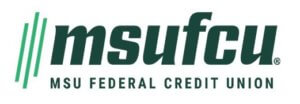 MSU Federal Credit Union (MSUFCU) hosted its annual Kids’ Day event, welcoming more than 1,000 community members to its headquarters campus in East Lansing on Saturday, June 29, 2024, for several hours of fun and financial education.
MSU Federal Credit Union (MSUFCU) hosted its annual Kids’ Day event, welcoming more than 1,000 community members to its headquarters campus in East Lansing on Saturday, June 29, 2024, for several hours of fun and financial education.
The three-hour event featured engaging games, interactive exhibits, and educational booths covering topics such as saving, budgeting, and the importance of responsible spending. Experts from MSUFCU were on hand to guide children through these interactive activities, ensuring they left with practical knowledge to help navigate their financial futures.
There was no shortage of energy and excitement as guests also enjoyed sweet and savory treats including Hungry Howie’s Pizza, Cravings Gourmet Popcorn, cotton candy, and frozen treats. Music Unlimited provided music. Entertainment consisted of giant inflatables, lawn games, balloon animals, glitter tattoos, a magician, a bubble garden, STEM activities, Touch-a-Truck, and more. Read more
July 12, 2024 News Stories
- Florida’s New Anti-ESG Law Tees Up Fight with Federal Bank Regulators
- Credit Union CEO to Testify at House Financial Services Subcommittee Field Hearing
- Illinois & Michigan Leagues Announce Retirements, New Leaders
- Coastal Credit Union Foundation and Carolinas Credit Union Foundation Award Scholarship Funds to Eleven Students
Florida’s New Anti-ESG Law Tees Up Fight with Federal Bank Regulators
Christopher Buchanan, American Banker
 A new Florida law provides an avenue of recourse for bank customers who believe they were denied financial services on the basis of their political opinions, religious beliefs, lawful ownership of guns or involvement in fossil fuel-based energy production.
A new Florida law provides an avenue of recourse for bank customers who believe they were denied financial services on the basis of their political opinions, religious beliefs, lawful ownership of guns or involvement in fossil fuel-based energy production.
The law, which covers both state-chartered and federally chartered financial institutions operating in the Sunshine State, sets up a potential legal clash over state and federal regulatory authorities. It is part of a broader backlash in red states to corporations’ attention to environmental, social and governance matters.
Under the law, consumers can submit a claim with the Florida Office of Financial Regulation concerning a canceled account or loan denial. The financial institution will then have 90 days to submit a response, including information about any alleged suspicious activity by the customer. The Office of Financial Regulation will investigate the claim.
Banks will also be required to submit an annual attestation of their compliance with the new law, which, if violated, could result in a penalty of perjury.
Credit Union CEO to Testify at House Financial Services Subcommittee Field Hearing
CUToday
 Karen Harbin, president/CEO of Commonwealth Credit Union, is scheduled to testify Friday at a House Financial Services subcommittee field hearing on the use of fintech to increase access to financial services.
Karen Harbin, president/CEO of Commonwealth Credit Union, is scheduled to testify Friday at a House Financial Services subcommittee field hearing on the use of fintech to increase access to financial services.
Harbin, who also serves as board secretary on America’s Credit Unions transition board secretary, will testify at the field hearing in Lexington, Ky. Commonwealth CU is headquartered approximately 25 miles away in Frankfort, Ky.
The hearing will be live streamed on the House Financial Services Committee’s website starting at 10 a.m. Eastern.
Harbin previously testified before the subcommittee in March on how overregulation is affecting credit unions’ ability to offer safe and affordable financial services.
Illinois & Michigan Leagues Announce Retirements, New Leaders
Peter Strozniak, Credit Union Times
 Libby Calderone will become the next president/CEO of the Illinois Credit Union League and its service corporation Envisant in Naperville on Jan. 1, 2025. She will succeed current President/CEO Tom Kane who plans to retire at the end of the year.
Libby Calderone will become the next president/CEO of the Illinois Credit Union League and its service corporation Envisant in Naperville on Jan. 1, 2025. She will succeed current President/CEO Tom Kane who plans to retire at the end of the year.
“Today’s leadership announcement is the culmination of a successful planning process the Boards, Tom, and Libby have worked on together for the past 2 years,” ICUL and Evisant Board Chair Joseph Kregul said in a prepared statement released last week. ” Kregul, president/CEO of the $457 million HealthCare Associates Credit Union in Naperville, also said Kane has agreed to stay on the league’s payroll as a part-time advisor.
 In Michigan, Patty Corkery began her tenure as joint CEO of the Michigan Credit Union League and its CUSO, CUSG, last week. She succeeded Dave Adams who retired after 27 years of service.
In Michigan, Patty Corkery began her tenure as joint CEO of the Michigan Credit Union League and its CUSO, CUSG, last week. She succeeded Dave Adams who retired after 27 years of service.
As the president/CEO of the Michigan Credit union League, Corkery also served as a CUSG board member since 2021. Before joining the league, Corkery worked for 25 years as a lawyer serving the credit union industry.
“We couldn’t be happier about both CUSG and MCUL being led by Patty. She is a passionate and skilled leader who is ready for the great opportunities that lie ahead,” MCUL Board Chair Dean Trudeau (president/CEO of the $423 million Public Service Credit Union in Romulus) and CUSG Board Chair Jackie Buchanan (president/CEO of the $5.1 billion Genisys Credit Union in Auburn Hills), said in a prepared statement.
Coastal Credit Union Foundation and Carolinas Credit Union Foundation Award Scholarship Funds to Eleven Students
The Coastal Credit Union Foundation, in partnership with Carolinas Credit Union Foundation, is proud to announce eleven recipients of the Credit Union Scholarship Program, totaling $33,000 awarded in scholarship funds. All scholarships are merit based, with three being larger amounts based on financial needs.
Tuition costs are rising at both public and private universities and colleges. Coastal and its Foundation are committed to helping students financially through the Carolinas Credit Union Foundation Scholarship Fund, which oversees scholarships for several credit unions throughout the Carolinas.
June 28, 2024 News Stories
- Raymond Dorado Appointed to FFIEC State Liaison Committee
- America’s Best Credit Unions in Each State
- Colorado Credit Union President and CEO Appointed Chairman of State of Colorado Division of Financial Services Board
- Celebrating a Century of Community: tnConnect Credit Union Marks 100th Anniversary
Raymond Dorado Appointed to FFIEC State Liaison Committee
 Raymond J. Dorado has been appointed to the Federal Financial Institutions Examination Council’s (FFIEC) State Liaison Committee (SLC). Dorado was designated by the National Association of State Credit Union Supervisors (NASCUS) to complete the remainder of the two-year term left vacant with the retirement of Deputy Superintendent of the Community and Regional Banks Unit, Yolanda Ford. Dorado’s partial term on the SLC will expire on March 31, 2025.
Raymond J. Dorado has been appointed to the Federal Financial Institutions Examination Council’s (FFIEC) State Liaison Committee (SLC). Dorado was designated by the National Association of State Credit Union Supervisors (NASCUS) to complete the remainder of the two-year term left vacant with the retirement of Deputy Superintendent of the Community and Regional Banks Unit, Yolanda Ford. Dorado’s partial term on the SLC will expire on March 31, 2025.
Dorado currently serves as Senior Deputy Superintendent for the Banking Division at the New York State Department of Financial Services (DFS). Prior to joining DFS, Dorado was Executive Vice President & Deputy General Counsel – Commercial Banking and Head of the Enterprise Bank Regulatory group at Citizens Financial Group, where he led teams of lawyers advising the bank and providing strategic counsel on U.S. banking laws and regulations.
Prior to that role, Dorado was Executive Vice President and Senior Policy and Planning Advisor to the Investment Services division of BNY Mellon, responsible for global strategic business initiatives and navigating potential risks in implementation. Before those roles, Dorado was Executive Vice President and Deputy General Counsel of BNY Mellon, and legal advisor to the Risk Committee of BNY Mellon’s Board of Directors. Read more
America’s Best Credit Unions in Each State
Rachel Rabkin Peachman, Forbes
 Technology has been both a blessing and a curse for the nation’s credit unions, which are defined as community-centered financial nonprofits in which each member is a part owner. While digital advances have made managing one’s finances more convenient—with tools that enable customers to handle tasks remotely, such as depositing checks through an app, transferring funds online, and receiving answers to questions via text—these tech innovations have also opened up the doors to digital fraud. “Unfortunately, financial institutions and their customers are commonly targeted by scammers,” says Donna Bland, CEO of California-based Golden 1 Credit Union.
Technology has been both a blessing and a curse for the nation’s credit unions, which are defined as community-centered financial nonprofits in which each member is a part owner. While digital advances have made managing one’s finances more convenient—with tools that enable customers to handle tasks remotely, such as depositing checks through an app, transferring funds online, and receiving answers to questions via text—these tech innovations have also opened up the doors to digital fraud. “Unfortunately, financial institutions and their customers are commonly targeted by scammers,” says Donna Bland, CEO of California-based Golden 1 Credit Union.
The best credit unions, however, are addressing these risks head-on. Golden 1, in fact, is using AI to spot identity theft and offering customers educational programs to help them defend against fraud. Still, it’s not easy for consumers to assess which organizations they can trust with their financial wellbeing. So Forbes has made that task a little easier for consumers by ranking the Best Credit Unions In Each State 2024.
For this seventh annual ranking, Forbes partnered once again with market research firm Statista to survey approximately 26,000 U.S. residents. Participants were asked to name all the banks and credit unions where they currently have—and previously had—a checking or savings account, and to identify financial institutions they know through the experiences of friends and family. Read more
Colorado Credit Union President and CEO Appointed Chairman of State of Colorado Division of Financial Services Board
 Colorado Credit Union is pleased to announce that our President and CEO, Mike Williams, has been appointed Chairman of the State of Colorado Division of Financial Services Board for a three-year term. Board appointments are made by gubernatorial appointment, with the chair position determined through board elections. This reflects Williams’ substantial expertise and dedication to the financial services industry in Colorado.
Colorado Credit Union is pleased to announce that our President and CEO, Mike Williams, has been appointed Chairman of the State of Colorado Division of Financial Services Board for a three-year term. Board appointments are made by gubernatorial appointment, with the chair position determined through board elections. This reflects Williams’ substantial expertise and dedication to the financial services industry in Colorado.
Williams has served on the State of Colorado Division of Financial Services Board since August 2017. His leadership and dedication have helped guide the board through numerous regulatory and economic challenges.
The Division of Financial Services is a key regulatory entity under the Department of Regulatory Agencies (DORA), responsible for overseeing state-chartered financial institutions, including credit unions and savings and loan associations.
For more information about the State of Colorado Division of Financial Services and its role within DORA, please visit financialservices.colorado.gov.
Celebrating a Century of Community: tnConnect Credit Union Marks 100th Anniversary
 tnConnect Credit Union proudly announces its centennial milestone, marking 100 years of service to the Knoxville community. Established on June 17, 1924, tnConnect has been a pillar of financial stability and community support, embodying its commitment to members’ financial well-being and local initiatives.
tnConnect Credit Union proudly announces its centennial milestone, marking 100 years of service to the Knoxville community. Established on June 17, 1924, tnConnect has been a pillar of financial stability and community support, embodying its commitment to members’ financial well-being and local initiatives.
On June 17, 1924, 7 post office employees each deposited $5 in a cigar box which was kept at the downtown Knoxville Post Office. This was the beginning of Knoxville Federal Employees Credit Union. The credit union has evolved with their membership through the years to become the tnConnect Credit Union of today.
Since its inception, tnConnect Credit Union has progressed from a modest community institution to a leading financial partner for individuals and businesses alike. Throughout its journey, tnConnect has remained steadfast in its dedication to providing personalized financial solutions, fostering lasting relationships, and investing in the communities it serves.
June 21, 2024 News Stories
- Minnesota Bankers Association Appeals Dismissal of Lawsuit Against FDIC Over NSF Fee Guidance
- Teachers Federal Credit Union Raises More Than $600,000 For Children’s Miracle Network Hospitals
- Dept. of Financial Institutions: Wisconsin’s State-Chartered Credit Unions Report Sound First Quarter Financial Performance
- New Florida Law Creates House Bill 3 Complaint, OFR Investigation Process, and Expands Applicability to Additional Financial Institutions
- Alabama Supreme Court Upholds Legality of Mandated Borrower Payments During Foreclosure Litigation
Minnesota Bankers Association Appeals Dismissal of Lawsuit Against FDIC Over NSF Fee Guidance
Kristen E. Larson, Ballard Spahr
 On June 5, 2024, Minnesota Bankers Association and Lake Central Bank (“Plaintiffs”), filed a notice of appeal to the United States Court of Appeals for the Eighth Circuit to appeal the Minnesota federal district court’s April 9, 2024 dismissal of the Plaintiffs’ lawsuit against the Federal Deposit Insurance Corporation (FDIC) challenging the FDIC’s guidance on non-sufficient funds (NSF) fees. FDIC Financial Institutions Letter 40-2022: Supervisory Guidance on Multiple Re-Presentment NSF Fees (“FIL 40”) replaced by Financial Institutions Letter 32-2023: FDIC Clarifying Supervisory Approach Regarding Supervisory Guidance on Multiple Re-Presentment NSF Fees (“FIL 32”) prohibits FDIC supervised banks from charging multiple NSF fees for the same item.
On June 5, 2024, Minnesota Bankers Association and Lake Central Bank (“Plaintiffs”), filed a notice of appeal to the United States Court of Appeals for the Eighth Circuit to appeal the Minnesota federal district court’s April 9, 2024 dismissal of the Plaintiffs’ lawsuit against the Federal Deposit Insurance Corporation (FDIC) challenging the FDIC’s guidance on non-sufficient funds (NSF) fees. FDIC Financial Institutions Letter 40-2022: Supervisory Guidance on Multiple Re-Presentment NSF Fees (“FIL 40”) replaced by Financial Institutions Letter 32-2023: FDIC Clarifying Supervisory Approach Regarding Supervisory Guidance on Multiple Re-Presentment NSF Fees (“FIL 32”) prohibits FDIC supervised banks from charging multiple NSF fees for the same item.
The Plaintiffs filed their complaint in July 2023 seeking declaratory and injunctive relief under the Administrative Procedures Act (APA) against the FDIC. The complaint alleges that FIL 40 is a legislative rule promulgated without adherence to the APA’s notice and comment rulemaking procedures, resulting in arbitrary and capricious agency action, and that the FDIC exceeded its statutory authority. In September 2023, the FDIC filed a motion to dismiss the lawsuit, arguing that the Plaintiffs lack standing, FIL 32 is not a final agency action imposing legal consequences, and the relief sought would not redress any injury. In opposition to the motion to dismiss, the Plaintiffs argued that their amended complaint pleads plausible APA claims that are ripe for review, they have standing to sue, and the court should vacate FIL 32.
The district court granted the FDIC’s motion to dismiss, finding that (i) the Plaintiffs lack standing and (ii) FIL 32 is not a final rule and therefore no legal consequences flow from it. Because the court found that the Plaintiffs lacked standing, it declined to rule on the Plaintiffs’ claims for arbitrary and capricious agency action and agency action contrary to law. We will continue to monitor this appeal.
Teachers Federal Credit Union Raises More Than $600,000 For Children’s Miracle Network Hospitals
Second Annual Teachers Federal Credit Union Golf Outing Raises Thousands for Children and Families Across the Country
 Teachers Federal Credit Union successfully raised more than $600,000 through fundraising efforts and its Second Annual Teachers Federal Credit Union Golf Tournament benefiting Children’s Miracle Network Hospitals®. Together with sponsorships from partners including TruStage and Fiserv, as well as donations from Teachers employees and members, funds raised will directly benefit Children’s Miracle Network Hospitals® and its mission to provide life-saving treatments to children across the country.
Teachers Federal Credit Union successfully raised more than $600,000 through fundraising efforts and its Second Annual Teachers Federal Credit Union Golf Tournament benefiting Children’s Miracle Network Hospitals®. Together with sponsorships from partners including TruStage and Fiserv, as well as donations from Teachers employees and members, funds raised will directly benefit Children’s Miracle Network Hospitals® and its mission to provide life-saving treatments to children across the country.
The Second Annual Teachers Federal Credit Union Golf Tournament benefiting Children’s Miracle Network Hospitals took place on Thursday, May 16, at Westhampton Country Club in Westhampton Beach, NY. More than 150 attendees joined Teachers to support Children’s Miracle Network Hospitals®, making this event the largest of its kind for the non-profit in the Northeast.
Since its founding in 1983, Children’s Miracle Network Hospitals® has raised funds to provide care to children, facilitating 38 million patient visits annually for 12 million kids. Teachers Federal Credit Union has been supporting the organization since 2021, and its first annual golf tournament raised $400,000 in 2023 – bringing the credit union’s two year combined fundraising total to over $1,000,000. Read more
Dept. of Financial Institutions: Wisconsin’s State-Chartered Credit Unions Report Sound First Quarter Financial Performance
 Wisconsin’s 107 state-chartered credit unions continue to exhibit sound financial performance as of March 31, 2024, according to data released today by the Wisconsin Department of Financial Institutions (DFI).
Wisconsin’s 107 state-chartered credit unions continue to exhibit sound financial performance as of March 31, 2024, according to data released today by the Wisconsin Department of Financial Institutions (DFI).
At the end of the first quarter, total assets for Wisconsin’s state-chartered credit unions rose to $65.5 billion. This is an increase of $1.5 billion since year-end 2023. Over the same time period, loans outstanding grew by $202.4 million, and shares and deposits rose $1.1 billion. This resulted in a slight decrease to the loan-to-share ratio from 92.40% at year-end 2023 to 90.91%.
In the three months ending on March 31, 2024:
- Net worth to assets were at 10.41%;
- Delinquent loan to total loan ratio was 0.69%, a decrease from the year-end ratio of 0.79%;
- Net income was strong at nearly $87.2 million, 0.54% return on average assets; and
- Growth ratios were all positive.
“Even with reduced earnings through the first quarter, net worth, loans, and savings increased while delinquency experienced a decline to begin the year,” said DFI Secretary Cheryll Olson-Collins. “Overall, Wisconsin’s state-chartered credit unions are financially stable with a positive outlook, and they continue to serve their members’ financial needs.” To learn more, read the DFI’s Office of Credit Unions’ 2024 First Quarter Financial Bulletin.
New Florida Law Creates House Bill 3 Complaint, OFR Investigation Process, and Expands Applicability to Additional Financial Institutions
Marina Olman-Pal, David C. Ashburn, Fred E. Karlinsky, & Claudio J. Arruda GreenbergTraurig
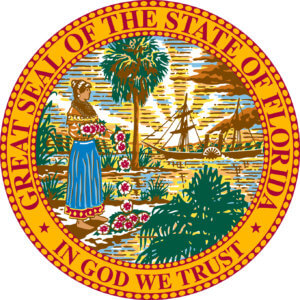 On May 2, 2024, Florida Gov. Ron DeSantis held a press conference where he signed Florida House Bill 989 (HB 989 or the Bill) into law. HB 989 amends section 655.0323, Florida Statutes, titled “Unsafe and unsound practices,” which was created by 2023 Florida House Bill No. 3 (HB 3). HB 989 will become effective July 1, 2024.
On May 2, 2024, Florida Gov. Ron DeSantis held a press conference where he signed Florida House Bill 989 (HB 989 or the Bill) into law. HB 989 amends section 655.0323, Florida Statutes, titled “Unsafe and unsound practices,” which was created by 2023 Florida House Bill No. 3 (HB 3). HB 989 will become effective July 1, 2024.
New Customer Complaint Process
HB 989 creates a new customer complaint process, providing customers with the right to submit a complaint to OFR if they suspect that a financial institution acted in violation of an “unsafe and unsound practice” standard described in section 655.0323(2), Florida Statutes. Section 655.0323(2), Florida Statutes, establishes the requirement that a financial institution may not deny, cancel, suspend or terminate its services to a person or otherwise discriminate against a person in making such services available, or in the terms or conditions of such services, on the basis of the factors outlined in section 655.0323(2), Florida Statutes created by HB 3.[1]
The customer must submit the complaint on a form prescribed by the Financial Services Commission (Commission) and include, at a minimum: (i) the customer’s name and address; (ii) the name of the financial institution; and (iii) the facts upon which the customer bases his/her allegation.
OFR Investigation Process
HB 989 creates an OFR investigatory process for customer complaints, requiring that OFR begin an investigation of the alleged violation within 90 calendar days of receipt of the complaint. OFR must also notify the financial institution that a complaint was filed. Read more
Alabama Supreme Court Upholds Legality of Mandated Borrower Payments During Foreclosure Litigation
Jon H. Patterson, Stephen Parsley & J. Graham Gilmore, Bradley
 The Alabama Supreme Court’s recent ruling in Coan v. Championship Property, LLC has significant implications for mortgage lenders, servicers, and foreclosure sale purchasers. The decision settles a contested issue: May trial courts require borrowers to make escrow-style payments pending a final judgment in a foreclosure or eviction dispute? Although the full extent of the ruling is not yet clear, Coan will be one tool in the kit of foreclosure sale purchasers – and perhaps servicers and lenders – to disincentivize borrowers from litigation delay tactics.
The Alabama Supreme Court’s recent ruling in Coan v. Championship Property, LLC has significant implications for mortgage lenders, servicers, and foreclosure sale purchasers. The decision settles a contested issue: May trial courts require borrowers to make escrow-style payments pending a final judgment in a foreclosure or eviction dispute? Although the full extent of the ruling is not yet clear, Coan will be one tool in the kit of foreclosure sale purchasers – and perhaps servicers and lenders – to disincentivize borrowers from litigation delay tactics.
In Coan, the dispute arose following a foreclosure by the mortgagee, a subsequent sale to Championship Property, LLC (a third-party purchaser), and an ejectment action by Championship. The borrower in the case disputed both the foreclosure and the ejectment while remaining in the property without making any mortgage payments or maintaining hazard insurance. The trial court required the borrower to make monthly payments into the court registry during litigation. When the borrower failed to make those payments, the court found her in contempt and granted possession to Championship as a sanction.
The Alabama Supreme Court vacated the order awarding possession to Championship, concluding it was not an “appropriate” sanction for contempt. However, the court upheld the underlying order to make monthly payments as a proper exercise of the court’s equitable power to protect each party’s interests in the disputed property. Coan confirms that trial courts can impose a payment requirement – and presumably other interim measures – to safeguard the property before the court determines the merits of the claims. Read more
June 14, 2024 News Stories
- In Pennsylvania: Credit Card Legislation Raises Privacy Concerns, Small Business Costs
- California AG Publishes FAQs on California’s ‘Junk Fee’ Law
- Michigan Surpasses California as the Top Cannabis Market in the U.S. By Sales Volume
- Tropical Financial Credit Union Awards $10,000 in Scholarships
In Pennsylvania: Credit Card Legislation Raises Privacy Concerns, Small Business Costs
Liz Carey, Financial Regulation News
 Newly proposed legislation in Pennsylvania could jeopardize customers’ privacy and become a financial burden for small businesses, the Electronic Payments Coalition (EPC) said Monday.
Newly proposed legislation in Pennsylvania could jeopardize customers’ privacy and become a financial burden for small businesses, the Electronic Payments Coalition (EPC) said Monday.
The legislation, House Bill 2394, would prohibit financial institutions from collected transaction fees on the sale tax portion of credit and debit card transactions. Called interchange, the fees are the card acceptance costs merchants pay for transmitting payments electronically. Critics said the legislation would raise privacy concerns for consumers and add to the burden small businesses would pay.
“This draconian provision could require businesses to pass along details about every consumer purchase, force new costs on small businesses and not benefit the commonwealth one iota,” EPC Executive Chairman Richard Hunt said. “What it will do, however, is jeopardize the secure, convenient card payment systems used by Pennsylvania families and small businesses, just to line the pockets of corporate mega-stores. We have seen the buyer’s remorse from similar provisions in Illinois. Pennsylvania politicians should not follow their example.”
Critics of the bill said it could force merchants to collect the sales tax as a separate transaction, essentially requiring merchants to file two transactions for every taxable sale. The measure could also require merchants to send payment companies additional information about a customer’s shopping habits, potentially creating consumer privacy issues. Read more
California AG Publishes FAQs on California’s ‘Junk Fee’ Law
Timothy A. Butler, Matthew M. White, Tessa L. Cierny of Greenberg Traurig, LLP – Financial Regulatory & Compliance News, National Law Review
Go-To Guide:
- California’s new “Hidden Fees Statute,” SB 478, is effective July 1, 2024, and will generally ban so-called “junk fees” by prohibiting “drip pricing,” which the legislation describes as “advertising a price that is less than the actual price that a consumer will have to pay for a good or service.”
- SB 478 generally requires that advertised prices encompass all fees consumers will pay, prohibiting the addition of most mandatory fees not included in the advertised price. With certain exceptions, businesses must present the total consumer cost upfront.
On May 8, 2024, the California Attorney General released a list of frequently asked questions (FAQs) to help businesses comply with SB 478, California’s soon-to-be effective “Hidden Fees Statute,” a law intended to address so-called “junk fees” by prohibiting “drip pricing.”
“Our price transparency law is about clear and honest communication with consumers, so consumers can make the financial choices that are best for them and their families. This new guidance provides information for businesses across California to ensure that clear answers are available, particularly for small businesses,” Attorney General Rob Bonta said in a separate press release. “The law is simple: the price you see is the price you pay. Laws work when everyone can comply. I am pleased that we can offer this guidance to help facilitate compliance with the law and make a more fair and level marketplace for businesses and consumers.” Read more
Michigan Surpasses California as the Top Cannabis Market in the U.S. By Sales Volume
Adrienne Roberts, Detroit Free Press
 California’s cannabis market, which has long been considered the dominant cannabis market in the U.S., has some competition.
California’s cannabis market, which has long been considered the dominant cannabis market in the U.S., has some competition.
As Michigan approaches its fifth anniversary of legal recreational marijuana sales in the state, it has overtaken California as the largest cannabis market in the U.S., according to some metrics that have not been widely reported but are tracked by the cannabis market intelligence firms and were shared with the Detroit Free Press.
For example, since December 2022, Michigan has sold more total grams of flower and units of other cannabis products (called equivalent unit sales) in both the recreational and medical market compared with California, according to data from BDSA, a cannabis market intelligence firm that tracks sales via point-of-sale data from a panel of participating cannabis retailers.
Another cannabis market intelligence firm, Headset, shows Michigan selling more units than California (defined as a single item that a customer buys, such as a pre-rolled joint, a multipack of pre-rolled joints, a jar of flower or a pack of gummies) since June 2023. Its data shows that in May, Michigan sold 24.2 million units, while California sold 17.3 million units. Read more
Tropical Financial Credit Union Awards $10,000 in Scholarships
Young adults have a lot on their plates these days, but three local college students can breathe a bit easier about their tuition, thanks to scholarships from Tropical Financial Credit Union (TFCU) in Miramar, Florida. This year, the South Florida credit union awarded three scholarships totaling $10,000–one grand prize of $5,000 and two $2,500 awards to deserving students.
The credit union created this scholarship program more than a decade ago to help area students further their education.
“Our scholarship program gives us the opportunity to connect with our members and the students we support,” said Rick Shaw, President and CEO. “We are lucky that many of our scholarship winners stay in touch, so we get to see how they thrive at school and beyond.”
All applicants were required to submit an essay highlighting their personal and educational objectives and how TFCU has helped, or could help, them reach financial goals. Other factors considered: community involvement, charity work, and extracurricular activities. Read more
June 7, 2024 News Stories
- Illinois Bill Eliminating Swipe Fees on Sales Taxes Inches Closer
- The ESG Battle Continues: State Enforcement Ramps Up
- ELGA Credit Union to Buy Marine Bank & Trust
- CUANM Announces New VP of Partnerships and Development
Illinois Bill Eliminating Swipe Fees on Sales Taxes Inches Closer
Tom Nawrocki, Payments Journal
 An unusual situation is arising in Illinois, where the state legislature has passed a budget bill prohibiting swipe fees on sales taxes, state excise taxes, and gratuities.
An unusual situation is arising in Illinois, where the state legislature has passed a budget bill prohibiting swipe fees on sales taxes, state excise taxes, and gratuities.
In response, the Illinois Retail Merchants Association has agreed to cap the credit retailers receive for collecting and remitting sales taxes in exchange for limiting the fees financial institutions can charge on the sales tax of transactions, as noted by The Center Square.
![]() Read Illinois Credit Union League Fact Sheet
Read Illinois Credit Union League Fact Sheet
The upshot is that merchants trying to avoid paying interchange fees on sales taxes may end up asking customers to swipe twice for each purchase. The law could also create havoc for payments processors handling transactions within the state.
This is the first time any state has passed such a provision, although it still has to be signed into law. As of last year, at least nine states had considered similar legislation, according to the National Restaurant Association.
An Overhaul for Processors
The logic behind the law is clear, but the practicality is up in the air. Consumers will find it confusing to swipe their card twice for the same purchase, and many will undoubtedly miss that second swipe.
But it may also require a rethinking of how these payments are processed. During a Senate committee meeting on the measure, Ashly Sharp of the Illinois Credit Union League pointed out that the measure is asking processors to basically work for free. Read more
The ESG Battle Continues: State Enforcement Ramps Up
Stephen Parsley, Erik Halvorson of Bradley Arant Boult Cummings LLP – Financial Services Perspectives, National Law Review
 Over the past two years, we’ve been covering the state legislatures and executive officials taking aim at environmental, social and governance (ESG) investing and ramping up the pressure on companies that incorporate ESG factors into business decisions. Financial services companies have been watching carefully to see what’s next in the state pushback to ESG. And there’s been plenty to see this spring – state agencies have continued to be active in enforcing their laws against financial services companies while attorneys general challenge federal laws supportive of ESG efforts, with varying degrees of success.
Over the past two years, we’ve been covering the state legislatures and executive officials taking aim at environmental, social and governance (ESG) investing and ramping up the pressure on companies that incorporate ESG factors into business decisions. Financial services companies have been watching carefully to see what’s next in the state pushback to ESG. And there’s been plenty to see this spring – state agencies have continued to be active in enforcing their laws against financial services companies while attorneys general challenge federal laws supportive of ESG efforts, with varying degrees of success.
No states have had more vigorous enforcement than Texas and West Virginia. In the Lone Star State, the Texas Permanent School Fund pulled $8.5 billion in assets from BlackRock, citing the 2021 state law that barred business between state agencies and financial firms determined to be boycotting energy companies. Not to be outdone, West Virginia added several more large banks to a list of institutions barred from engaging in certain state business because of their policies on energy finance. The list began in 2022 and contains many major financial institutions added by the state’s treasurer.
Not only have states been enforcing their own anti-ESG legislation, but they also have pursued challenges to federal efforts to encourage ESG. The Fifth Circuit recently dismissed a challenge by the attorney generals of Texas, Louisiana, Utah, and West Virginia to a 2022 Securities and Exchange Commission rule altering proxy voting requirements to make it easier for investors to identify ESG issues on corporate ballots. In a unanimous decision, the Fifth Circuit held that the states could not show a risk of harm and so lacked standing to challenge the rule. Read more
ELGA Credit Union to Buy Marine Bank & Trust
 The $1.52-billion ELGA Credit Union is reaching well beyond its state’s borders to buy the $650-million Marine Bank & Trust, based in Vero Beach, Fla. The purchase marks the third time a Michigan credit union has reached into the Sunshine State to either buy a bank.
The $1.52-billion ELGA Credit Union is reaching well beyond its state’s borders to buy the $650-million Marine Bank & Trust, based in Vero Beach, Fla. The purchase marks the third time a Michigan credit union has reached into the Sunshine State to either buy a bank.
The credit union reported shareholders of Marine Bank will receive $43.75 in cash for each share owned in the all-cash deal. The transaction is expected to be completed in early 2025, subject to regulatory and Marine Bank shareholder approvals. Terms of the agreement were not disclosed.
ELGA Credit Union said the deal will combine its consumer and low-income lending expertise with Marine Bank’s commercial and treasury management offerings, ELGA said.
Profitable Bank
Marine Bank made $977,000 in net income through March of this year and $4.9 million in 2023, according to FDIC data. ELGA reported $7.1 million in net income in Q1 2024 and $27.8 million in 2023, according to call report data. The CU’s capital stands at a very high 25.27%.
Florida Market
Following the close of the transaction, Penney will remain as Florida Market President and retain local decision-making authority over banking centers in the communities Marine Bank currently serves, ELGA said. Michigan’s credit unions have been active in buying banks in Florida. Grand Rapids-based Lake Michigan Credit Union has bought two banks, one in Tampa, the other in Naples. DFCU Financial in Dearborn, Mich. also bought a bank in Tampa, as well as the two Florida offices of an Iowa-based bank. Read more
Credit Union Association of New Mexico Announces Chriselle Martinez, PhD as New VP of Partnerships and Development
 The Credit Union Association of New Mexico (CUANM) is thrilled to announce the appointment of Chriselle Martinez, PhD as the new Vice President of Partnerships and Development. Martinez brings a wealth of experience and a deep commitment to serving New Mexico’s credit unions and their members.
The Credit Union Association of New Mexico (CUANM) is thrilled to announce the appointment of Chriselle Martinez, PhD as the new Vice President of Partnerships and Development. Martinez brings a wealth of experience and a deep commitment to serving New Mexico’s credit unions and their members.
“It is with great pride and honor to be working on behalf of credit unions within the state of Nuevo Mexico,” said Chriselle Martinez. “I moved to the land of enchantment in 1999 as an undergraduate student from out of state and quickly realized that Nuevo Mexico would be where I would build a family and set my roots to serve my community. In the past few years, I have worked with credit unions nationally to provide education and advocacy for Community Development Financial Institution (CDFI) credit unions. As the new VP of Partnerships and Development, I see my initial opportunity as driving forward the mission of the association, strengthening existing partnerships, and resourcing New Mexico credit unions with tools and services that best serve their members and communities.”
Melia D. Heimbuck, President & CEO of CUANM, expressed her enthusiasm about the newest addition to the team, stating, “We are delighted to welcome Chriselle Martinez to the Credit Union Association of New Mexico. Her dedication to the credit union movement and her extensive experience with credit unions on a national level make her an invaluable asset. Chriselle’s commitment to advancing the interests of New Mexico’s credit unions aligns perfectly with our mission. We are confident that her leadership will drive our efforts to new heights, creating stronger partnerships and providing essential resources to our member credit unions.”Read more
May 31, 2024 Good News Stories
- Opportunities Abound for Veterans at A Kentucky Credit Union
- How Credit Unions & Health Care Providers Can Join Forces to Address Medical Debt
- TruWest Credit Union Donates $65,000 to Phoenix Children’s Miracle Network Hospital
- Women Take a Bite Out of Business in The Badger State
Opportunities Abound for Veterans at A Kentucky Credit Union
Aaron Passman, CreditUnions.com
 A networking and education program from Abound Credit Union ($2.3B, Radcliff, KY) is setting up small business owners for success in Central Kentucky.
A networking and education program from Abound Credit Union ($2.3B, Radcliff, KY) is setting up small business owners for success in Central Kentucky.
The cooperative’s Veterans 2 Entrepreneurs program has helped approximately 500 would-be entrepreneurs since it launched eight years ago and is just one component of Abound’s broader commitment to serving members of the military. But growing the credit union’s commercial loan portfolio isn’t the primary objective; instead, the credit union is trying to help entrepreneurs evaluate possible opportunities.
“They want to be part of the network and talk through some of the things they need to be able to do [to start a business],” says Ray Springsteen, CEO of Abound. “If they want to start a running store, open a franchise, or maybe start some type of consulting firm, some of them need loans but many of them do not.”
Why It Matters
Approximately 200,000 people retire from the military every year and face challenges related to housing, work, education, and finance as part of that process. For those looking for work or to start a new business, networking and access to capital can be substantial hurdles.
How Credit Unions & Health Care Providers Can Join Forces to Address Medical Debt
Jeff Grobaski, Credit Union Times
Allow patients to access medical loans at the lowest cost possible while strengthening the communities your CU serves.
 Within America’s health care system lurks a growing threat: Medical debt. Nearly 42% of Americans have medical debt, according to a 2022 KFF Health Care Debt Survey, with the average household owing more than $13,000, the U.S. Census Bureau reported. Millions of Americans struggle under its crushing weight, often facing impossible choices between essential treatment and financial stability.
Within America’s health care system lurks a growing threat: Medical debt. Nearly 42% of Americans have medical debt, according to a 2022 KFF Health Care Debt Survey, with the average household owing more than $13,000, the U.S. Census Bureau reported. Millions of Americans struggle under its crushing weight, often facing impossible choices between essential treatment and financial stability.
Medical bills trap families in financial hardship, hindering their ability to afford basic necessities and jeopardizing their health by discouraging preventative care and treatments. This burden affects the most vulnerable such as low-income families, minorities and those with chronic illnesses.
How can credit unions help to counter this consumer crisis? Partnering with local health care providers creates a surprisingly simple solution to disrupt the cycle of inescapable debt. By forging credit union-health care partnerships, patients can access universal and accessible medical loans at the lowest cost possible, while credit unions strengthen the communities they serve. Read more
TruWest Credit Union Donates $65,000 to Phoenix Children’s Miracle Network Hospital
Jennifer Howard, CU Insight
 TruWest Credit Union is proud to announce a generous donation of over $65,000 to Phoenix Children’s in Phoenix, Arizona. This contribution is comprised of the 2023 donations of credit union employees and board members. The substantial gift includes employee charity payroll donations with over 190 participants, and underscores TruWest’s ongoing commitment to supporting the health and well-being of children in the Phoenix community.
TruWest Credit Union is proud to announce a generous donation of over $65,000 to Phoenix Children’s in Phoenix, Arizona. This contribution is comprised of the 2023 donations of credit union employees and board members. The substantial gift includes employee charity payroll donations with over 190 participants, and underscores TruWest’s ongoing commitment to supporting the health and well-being of children in the Phoenix community.
The donation will be utilized to fund critical life-saving treatments, healthcare services, innovative research, pediatric medical equipment, and essential programs that ensure every child receives the highest level of care. Phoenix Children’s, known for its exceptional pediatric healthcare services, will benefit significantly from this contribution, furthering its mission to provide hope, healing, and the best possible healthcare to children and their families. Read more
Women Take a Bite Out of Business in The Badger State
Sharon Simpson, CreditUnions.com
 Women in the United States earn approximately 82 cents for every $1 earned by men, according to Pew Research Center. That discrepancy has held steady for two decades and has pushed many credit unions to create better solutions for historically underserved communities.
Women in the United States earn approximately 82 cents for every $1 earned by men, according to Pew Research Center. That discrepancy has held steady for two decades and has pushed many credit unions to create better solutions for historically underserved communities.
Helping women to build financial security is a strategic focus for Summit Credit Union ($6.9B, Cottage Grove, WI). For years, the cooperative has offered financial education, training, and support for male and female consumers and small business owners. But in November 2023, Summit partnered with the startup StartingBlock to launch Fellowship for Women Entrepreneurs, a one-year program that provides mentorship, workspace, workshops, and training for female business owners.
The Right Fit, Right In Summit’s Backyard
The fellowship aligns with Summit’s mission and financial education offerings that help retail and commercial members in areas such as wealth management, home loans, and financial security.
Through conversations with StartingBlock, a startup hub for Madison-area entrepreneurs, Summit learned about the hub’s desire to create a curriculum specifically for women entrepreneurs. From there, both organizations worked together to launch the program. Read more
May 23, 2024 News Stories
- Colorado The First State to Move Forward with Attempt to Regulate AI’s Hidden Role in American Life
- Space Coast Credit Union Announces Partnership with The Miami Dolphins
- Why This Credit Union Is Advocating for Mental Health
- FinCEN Holds Bilingual Beneficial Ownership Engagement in Puerto Rico
Colorado The First State to Move Forward with Attempt to Regulate AI’s Hidden Role in American Life
Jesse Bedayn, Associated Press
 The first attempts to regulate artificial intelligence programs that play a hidden role in hiring, housing and medical decisions for millions of Americans are facing pressure from all sides and floundering in statehouses nationwide. Only one of seven bills aimed at preventing AI’s penchant to discriminate when making consequential decisions — including who gets hired, money for a home or medical care — has passed. Colorado Gov. Jared Polis hesitantly signed the bill on Friday.
The first attempts to regulate artificial intelligence programs that play a hidden role in hiring, housing and medical decisions for millions of Americans are facing pressure from all sides and floundering in statehouses nationwide. Only one of seven bills aimed at preventing AI’s penchant to discriminate when making consequential decisions — including who gets hired, money for a home or medical care — has passed. Colorado Gov. Jared Polis hesitantly signed the bill on Friday.
Colorado’s bill and those that faltered in Washington, Connecticut and elsewhere faced battles on many fronts, including between civil rights groups and the tech industry, and lawmakers wary of wading into a technology few yet understand and governors worried about being the odd-state-out and spooking AI startups. Polis signed Colorado’s bill “with reservations,” saying in an statement he was wary of regulations dousing AI innovation. The bill has a two-year runway and can be altered before it becomes law. Read more
Space Coast Credit Union Announces Partnership with The Miami Dolphins
The Space Coast Rocket
 Space Coast Credit Union (SCCU) announced today its partnership with the Miami Dolphins. As a proud partner of the Dolphins, this marks SCCU’s first-ever professional sports team partnership.
Space Coast Credit Union (SCCU) announced today its partnership with the Miami Dolphins. As a proud partner of the Dolphins, this marks SCCU’s first-ever professional sports team partnership.
“We know football unites communities across our state,” says Timothy M. Antonition, CEO of Space Coast Credit Union. “This milestone partnership is one of our strategic initiatives to enhance our presence in and support of South Florida and beyond, fostering community engagement and delivering personalized experiences.”
SCCU and the Dolphins are joining forces with a common purpose of serving the community. Through the partnership, SCCU will be the presenting sponsor of the Miami Dolphins Football UNITES™ program’s CommUNITY tailgate, that invites diverse community programs to attend Dolphins home games and unites youth through fellowship and group activities. Additionally, SCCU will support the Junior Dolphins Flag Football initiative.
As part of the partnership, SCCU will be featured on Dolphins digital, radio and paid social media campaigns, as well as feature SCCU’s Watchdog campaign during the Dolphins’ post-game and coaches shows. Read more
Why This Credit Union Is Advocating for Mental Health
Herb White, CU Times
 Sharonview FCU’s CEO shares the deeply personal reasons why mental health advocacy is a company pillar.
Sharonview FCU’s CEO shares the deeply personal reasons why mental health advocacy is a company pillar.
Toward the end of last year, Sharonview’s leadership and I focused on building a strategic plan for 2024 and beyond. The discussion naturally turned to our community pillars: Ending Homelessness, Alleviating Hunger and Promoting Financial Literacy. These are causes that we, as an organization, seek to support and uplift. As we reflected, it seemed that promoting financial literacy was helpful, but redundant – it’s what we do, day in and day out as we strive to help our members achieve their financial goals. This allowed me to introduce something that is near and dear to my heart: Mental Health Advocacy and Awareness.
This new pillar is in alignment with the other two as there can be overlap of individuals and families impacted by mental health concerns while facing food and shelter insecurity. All three of these community-focused pillars are supported by our organization’s desire to improve financial literacy in the communities we serve.
The team responded enthusiastically. Here is why this pillar is important to me. Read more
FinCEN Holds Bilingual Beneficial Ownership Engagement in Puerto Rico
 The Financial Crimes Enforcement Network (FinCEN) held an outreach event on beneficial ownership reporting requirements with Puerto Rico’s Secretary of State—the Hon. Omar J. Marrero-Diaz—at the Puerto Rico Department of State. The event included trade associations that represent small business groups in Puerto Rico. It was FinCEN’s first outreach event in Spanish regarding the Federal requirements to report information to FinCEN about the individuals who ultimately own or control them.
The Financial Crimes Enforcement Network (FinCEN) held an outreach event on beneficial ownership reporting requirements with Puerto Rico’s Secretary of State—the Hon. Omar J. Marrero-Diaz—at the Puerto Rico Department of State. The event included trade associations that represent small business groups in Puerto Rico. It was FinCEN’s first outreach event in Spanish regarding the Federal requirements to report information to FinCEN about the individuals who ultimately own or control them.
During today’s event, FinCEN Deputy Director Jimmy Kirby emphasized that implementation of the beneficial ownership reporting requirements is a significant priority for FinCEN in its efforts to combat money laundering and related predicate offenses. He explained that filing beneficial ownership information reports is simple, secure, and free. FinCEN began accepting reports on January 1, 2024, and has received more than 2 million reports to date.
Today’s meeting builds upon previous U.S. Treasury engagements in Puerto Rico this year. In April, Treasury Under Secretary for Terrorism and Financial Intelligence Brian Nelson visited Puerto Rico and participated in a banking roundtable where he provided remarks on combating illicit financial activities and implementing strong standards to combat money laundering and counter the financing of terrorism. And in February, FinCEN Director Andrea Gacki traveled to Puerto Rico to highlight collaborative efforts to combat public corruption, fraud, and drug trafficking. Read more
May 17, 2024 News Stories
- Colorado Lending Caps Put State-Chartered Banks At ‘Severe Disadvantage’
- New York State Department of Financial Services Cybersecurity Program Template
- California and Nevada Leagues, Utah’s Credit Unions Take Next Step in Consolidation with Change in CEO
- CU Alliance and the Houston Chapter of Credit Unions Raise Record Funds for Charities and Educational Scholarships with Annual Golf Tournament
- WA Department of Financial Institutions Updated Guidance on Cyber Incidents and Data Security Breach Notification
Colorado Lending Caps Put State-Chartered Banks At ‘Severe Disadvantage’
 The American Bankers Association and Consumer Bankers Association last week filed an amicus brief in support of a lawsuit brought against Colorado challenging a new law capping interest rates and fees on loans to state residents made by state-chartered banks, no matter where the bank is located.
The American Bankers Association and Consumer Bankers Association last week filed an amicus brief in support of a lawsuit brought against Colorado challenging a new law capping interest rates and fees on loans to state residents made by state-chartered banks, no matter where the bank is located.
The National Association of Industrial Bankers and two other trade groups sued Colorado in March after the state legislature passed a law opting out of the federal Depository Institutions Deregulation and Monetary Control Act, or DIDMCA, allowing the state to establish restrictions on loans made by state-chartered banks. Colorado alleges the law applies to banks not only within its borders, but those chartered in other states. In their lawsuit, the plaintiffs argued that the law undermined community banks as it doesn’t apply to federally chartered banks.
The FDIC last month sided with Colorado. In their amicus brief, ABA and CBA expressed concern with the agency’s rationale that the location of the borrower matters for enforcement of state law, rather than the location of the lender. Such a precedent would “create massive uncertainty for all federally insured depository institutions, subjecting them to multiple and inconsistent state laws,” the associations said. They also said the Colorado law would place state-chartered banks at a “severe disadvantage” with federally chartered institutions when lending. “That competitive inequality would fly in the face of the express and overriding congressional intent to create parity between all federally insured depository institutions and national banks when Congress enacted Sections 521-523 of the DIDMCA,” they said. Read more
New York State Department of Financial Services Cybersecurity Program Template
 To help small businesses create cybersecurity programs, DFS has developed a model Cybersecurity Program Template. This resource prompts individual licensees and single person entities to carefully consider and address the core concepts of a cybersecurity program in order to help create a program that complies with the requirements of the Cybersecurity Regulation.
To help small businesses create cybersecurity programs, DFS has developed a model Cybersecurity Program Template. This resource prompts individual licensees and single person entities to carefully consider and address the core concepts of a cybersecurity program in order to help create a program that complies with the requirements of the Cybersecurity Regulation.
The template also includes frameworks for developing and tracking asset inventories, risk assessments, multi-factor authentication exceptions, and third-party service providers. Download it today via this link or from the Department’s Cybersecurity Resource Center Read more
California and Nevada Leagues, Utah’s Credit Unions Take Next Step in Consolidation with Change in CEO
 The California and Nevada Credit Union Leagues and Utah’s Credit Unions are reporting they have taken the next step in their new alliance with a change in CEOs.
The California and Nevada Credit Union Leagues and Utah’s Credit Unions are reporting they have taken the next step in their new alliance with a change in CEOs.
As CUToday.info reported earlier, in February the organizations said they had entered into an agreement to form a joint association support services organization, saying they believe the operating model maximizes efficiency while preserving state leagues’ identities, which is “critical to advocacy efforts.”
Simpson to CEO of Leagues
This week, Scott Simpson, who has been CEO of Utah’s Credit Unions, also became CEO of both the California Credit Union League and the Nevada Credit Union League. The retiring Diana Dykstra will retain the position of president of the Leagues until her retirement on July 1. Read more
CU Alliance and the Houston Chapter of Credit Unions Raise Record Funds for Charities and Educational Scholarships with Annual Golf Tournament
CU Alliance, a leading Credit Union Service Organization headquartered in Houston, proudly announces that this year’s Annual Golf Tournament, held in partnership with the Houston Chapter of Credit Unions, has raised a record-breaking $56,405 for chapter charities and educational scholarships.
The tournament, which took place on April 30 at the Wildcat Golf Club in Houston, Texas, brought together credit union leaders and vendors for a day of camaraderie, competition, and, most importantly, charitable giving. The event serves as a cornerstone for raising both funds and awareness for local Houston charities and the CUSO’s Dream Educational Foundation. Read more
WA Department of Financial Institutions Updated Guidance on Cyber Incidents and Data Security Breach Notification
This bulletin offers details on recently enacted regulation changes, along with regulatory guidance. This bulletin summarizes state and federal notification requirements when a credit union has a cyber incident and/or unauthorized access to sensitive information. This information aims to assist in establishing a security response system to effectively address cyber incidents, incidents of security breaches, and notification to appropriate stakeholders. Credit unions should ensure their incident response program includes plans and procedures for both cyber incident reporting and data breach notifications.
Cyber incidents and unauthorized access to members’ personal information could potentially occur, despite the measures credit unions have implemented to safeguard information technology systems against security incidents and both internal and external breaches. Typically, these measures involve ensuring that third-party service providers are securing members’ personal information, conducting thorough testing of your credit union’s systems (including external and internal penetration testing), and taking other crucial steps to reduce the risk of a security breach.
May 10, 2024 Good News Stories
- Pelican State Credit Union featured in season 2 of PBS’ show “Opportunity Knock$”
- Credit Unions in Massachusetts to Raise Awareness of Dangerous Disease
- New Mexico Credit Unions Read: Celebrating Financial Literacy Month with Statewide Reading Initiative
- CU Foundation’s $250,000 Gift Expands Care to Rural Alzheimer’s Patients
Pelican State Credit Union featured in season 2 of PBS’ show “Opportunity Knock$”
 Pelican State Credit Union is thrilled to announce that it will appear on the second season of PBS’ “Opportunity Knock$,” alongside Denham Springs couple, Bobbye Wallace and Wesley Wolfe. The reality television show follows six families as they take control of their finances with the help of renowned financial experts and local credit unions.
Pelican State Credit Union is thrilled to announce that it will appear on the second season of PBS’ “Opportunity Knock$,” alongside Denham Springs couple, Bobbye Wallace and Wesley Wolfe. The reality television show follows six families as they take control of their finances with the help of renowned financial experts and local credit unions.
At a time when more than 60% of Americans are living paycheck-to-paycheck, a lack of knowledge of financial resources and strategy continually prevents families and individuals from identifying ways to break free from financial hardship.
Pelican State was chosen to participate in the groundbreaking reality television show thanks to its Community Development Financial Institution (CDFI) Certification.
The credit union first appeared on “Opportunity Knock$” groundbreaking first season, in which the credit union helped Lake Charles couple Charles and Tiffany White. That season went on to win the prestigious Silver Telly Award for Best Reality Television Program. Read more
Credit Unions in Massachusetts to Raise Awareness of Dangerous Disease
 For the second year running, in partnership with the Credit Union Association of New Mexico (CUANM), Governor Michelle Lujan Grisham declared April as Financial Literacy Month, reinforcing the importance of financial education in our communities. In celebration of this declaration, the Credit Union Foundation of New Mexico has launched an inspiring initiative titled “New Mexico Credit Unions Read.” During the week of April 22-26, credit union volunteers across the state devoted their time to promote financial literacy among elementary school students.
For the second year running, in partnership with the Credit Union Association of New Mexico (CUANM), Governor Michelle Lujan Grisham declared April as Financial Literacy Month, reinforcing the importance of financial education in our communities. In celebration of this declaration, the Credit Union Foundation of New Mexico has launched an inspiring initiative titled “New Mexico Credit Unions Read.” During the week of April 22-26, credit union volunteers across the state devoted their time to promote financial literacy among elementary school students.
This year, 164 dedicated volunteers from 15 credit unions participated in the New Mexico Credit Unions Read initiative, visiting 491 classrooms and reaching 9,865 students statewide. Volunteers read the book Those Shoes by Maribeth Boelts, as well as the Spanish version, Los Zapatos. The book provides a compelling narrative to introduce concepts of financial decision-making and thrift. Read more
CU Foundation’s $250,000 Gift Expands Care to Rural Alzheimer’s Patients
The SECU Foundation supports the Asheville, N.C.-based MemoryCare for the third time.
 Approximately 130 people living with Alzheimer’s or other cognitive impairments in rural Western North Carolina, along with 300 caregivers, will gain access to in-home clinical and care management services from the nonprofit MemoryCare thanks to a $250,000 donation from the SECU Foundation.
Approximately 130 people living with Alzheimer’s or other cognitive impairments in rural Western North Carolina, along with 300 caregivers, will gain access to in-home clinical and care management services from the nonprofit MemoryCare thanks to a $250,000 donation from the SECU Foundation.
May 3, 2024 Stories
- Calling Its Practices ‘Unconscionable,’ Members of Congress Launch Investigation of One CU’s Overdraft Practices
- America’s Credit Unions: Overdraft Data is Exempt from Freedom of Information Act
- Summit Credit Union Awards $58,000 in Scholarships
- How a Tennessee Credit Union Uses Generative AI to Foster Fair Lending
Calling Its Practices ‘Unconscionable,’ Members of Congress Launch Investigation of One CU’s Overdraft Practices

Calling Frontwave Credit Union’s overdraft practices “unconscionable,” a half-dozen members of Congress are calling for an investigation in a letter sent to the credit union.
America’s Credit Unions: Overdraft Data is Exempt from Freedom of Information Act
Credit union overdraft and Nonsufficient Fee income should not be publicly disclosed because it is confidential business information and is exempt from the Freedom of Information Act, America’s Credit Unions told the National Credit Union Administration on Friday.
“If the NCUA is releasing Call Report data under separate authority, we would appreciate that clarification,” Carrie Hunt, America’s Credit Unions Chief Advocacy Officer, wrote in a letter to members of the NCUA board. Read more
Summit Credit Union Awards $58,000 in Scholarships
 Summit Credit Union is pleased to announce awarding $58,000 in scholarship grants for fall 2024 and spring 2025 semesters. Sixty-one students were selected based on their academic achievements, their involvement in school, and community-related activities. The scholarship funds will be used towards each recipient’s college-related expenses. Since inception, Summit Credit Union has awarded over $418,000 in scholarships and has helped over 420 students in their pursuit of knowledge. Read more
Summit Credit Union is pleased to announce awarding $58,000 in scholarship grants for fall 2024 and spring 2025 semesters. Sixty-one students were selected based on their academic achievements, their involvement in school, and community-related activities. The scholarship funds will be used towards each recipient’s college-related expenses. Since inception, Summit Credit Union has awarded over $418,000 in scholarships and has helped over 420 students in their pursuit of knowledge. Read more
How a Tennessee Credit Union Uses Generative AI to Foster Fair Lending
Jenny Vipperman, president and chief executive of ORNL Federal Credit Union in Oak Ridge, Tennessee, is partnering with the Burbank, California-based lending software firm Zest AI to pilot an artificial intelligence-powered tool for ensuring that fair lending is done right.
Zest AI formally debuted its large language lending intelligence bot LuLu in late February. The conversational AI assistant, which is kept separate from underwriting models as per regulatory requirements, is first trained using roughly 15 years’ worth of customer queries recorded by the fintech as well as public sources of data such as National Credit Union Administration quarterly call report data and Home Mortgage Disclosure Act filings. Read more
Apr. 26, 2024 Stories
- Wisconsin Credit Union League President & CEO Brett Thompson Announces Retirement at Yearend
- Massachusetts Credit Union Warns Members of Data Breach That Exposed Personal Information
- Financial Literacy Initiatives on The Rise in America’s High Schools
- Michigan’s Genisys CU Again Named Among Best Performing
- Oregon’s OnPoint Community CU Donates $100K to Support Environment, Natural Resources
Wisconsin Credit Union League President & CEO Brett Thompson Announces Retirement at Yearend
 After nearly 23 years serving as The Wisconsin Credit Union League’s (The League) President & CEO, Brett Thompson has announced his plans to retire in December 2024. The League’s Board of Directors has begun a nationwide search for a successor with Humanidei.
After nearly 23 years serving as The Wisconsin Credit Union League’s (The League) President & CEO, Brett Thompson has announced his plans to retire in December 2024. The League’s Board of Directors has begun a nationwide search for a successor with Humanidei.
“It’s been an honor of a lifetime serving Wisconsin’s credit unions,” said Thompson. “I am excited to see what the future holds for a Movement with such talent and dedication behind it.”
Highlights during Thompson’s tenure include the opening of The League’s Credit Union House in Madison, the formation of The Wisconsin Credit Union Foundation which has now provided over $1.76 million to promote the wellness of credit unions and the communities they serve, and the development of Reach Business Lenders® to help credit unions source and originate commercial loans.
In addition, Thompson has served on the Boards of the American Association of Credit Union Leagues (chair), Credit Union House (chair), and the National Credit Union Foundation, as well as CUNA’s Executive, Corporate Governance, and Government Affairs Committees. He has received the American Association of Credit Union League’s Farley and Eagle awards. Read more
Massachusetts Credit Union Warns Members of Data Breach That Exposed Personal Information
Some local federal credit union members are being asked to check their bank statements after a data breach in February that exposed customers’ Social Security Numbers, among other personal details.
Direct Federal Credit Union says their vendor, Wescom Resource Group (WRG), notified members of a security incident where member names, Direct Federal account numbers, and Social Security Numbers may have been compromised.
It is unclear how many members were affected by the breach. Read more
Financial Literacy Initiatives on The Rise in America’s High Schools
 Earlier this year, the state of Washington’s House of Representatives unanimously adopted House Bill 1915 (HB 1915), a bill that would require high school students to complete a financial education course as a statewide graduation requirement beginning in the 2027-28 school year.
Earlier this year, the state of Washington’s House of Representatives unanimously adopted House Bill 1915 (HB 1915), a bill that would require high school students to complete a financial education course as a statewide graduation requirement beginning in the 2027-28 school year.
True to the credit union movement’s century-long dedication to financial literacy, inclusion, and education, including community outreach to local schools, House Bill 1915 is supported by Washington’s 58 credit unions.
Passing this bill would mark a turning point in the way the state’s youth begins their lifelong journey in personal finance, and how teachers and parents can begin to incorporate financially healthy concepts, however basic, into their children’s daily lives. Read more
Michigan’s Genisys CU Again Named Among Best Performing
Genisys Credit Union has been ranked 24th in Best Performing Credit Unions in the U.S. by S&P Global Market Intelligence.
For four years in a row, Genisys Credit Union has ranked in the Top 25 in the nation. Credit unions were evaluated using financial performance metrics, including member growth, shares and deposits per member, net worth as a percentage of total assets, delinquent loans as a percentage of total loans, and return on average assets for a 12-month period ending Dec. 31, 2023. Read more
Oregon’s OnPoint Community CU Donates $100K to Support Environment, Natural Resources
 In celebration of Earth Day 2024, OnPoint Community Credit Union donated $100,000 to local nonprofits working to preserve and protect the environment, natural resources and wildlife in Oregon and southwest Washington.
In celebration of Earth Day 2024, OnPoint Community Credit Union donated $100,000 to local nonprofits working to preserve and protect the environment, natural resources and wildlife in Oregon and southwest Washington.
The donation is part of OnPoint’s Green Horizons initiative, which launched in 2021 to help empower the credit union’s members and employees to care for the planet. This year’s beneficiaries are The Nature Conservancy in Oregon, Friends of Trees, McKenzie River Trust and Columbia Slough Watershed Council. Each organization will receive $25,000. Read more
Apr. 19, 2024 Stories
- NY Bankers Seek Regulatory ‘Pause’ in Credit Union-Bank Merger
- Washington State, “True Lender” Law Signed, Effective June 6, 2024
- New Mexico’s U.S. Eagle Opens Branch in Underserved Area
- New Hampshire Credit Union Hopes Gift Cards Will Give It an Edge
NY Bankers Seek Regulatory ‘Pause’ in Credit Union-Bank Merger
David Baumann, Washington Credit Union Daily
 New York banking trade groups are asking the New York Department of Financial Services to “pause” the first-ever merger between a credit union and bank in the Empire State, in order to conduct an extensive investigation of the proposed deal.
New York banking trade groups are asking the New York Department of Financial Services to “pause” the first-ever merger between a credit union and bank in the Empire State, in order to conduct an extensive investigation of the proposed deal.
In a letter last week, the presidents/CEOs of the New York Bankers Association and the Independent Bankers of New York State asked Adrienne Harris, superintendent of the New York Department of Financial Services, to delay the merger of Catskill Hudson Bank and the Hudson Valley Credit Union. Under the merger, announced in January, customers of the bank would become members of the credit union.
“We believe this acquisition warrants careful and transparent consideration and scrutiny due to the recent significant shifts within the credit union industry, particularly their unchecked expansion and continued exemption from most taxes and the Community Reinvestment Act,” Claire Cusack, head of the New York Bankers’ Association and John Witkowski, chief of the Independent Bankers of New York, wrote in their letter. Read more
Washington State, “True Lender” Law Signed, Effective June 6, 2024
John Culhane Jr., Mindy Harris Mindy Harris, & Ronald Vaske Ronald Vaske; Ballard Spahr LLP
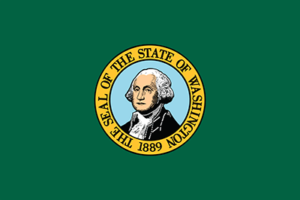 After its passage by the Washington state legislature, Substitute Senate Bill (SSB) 6025, the Washington “predatory loan prevention act”, was approved by Governor Jay Inslee on March 25, 2024, with an effective date of June 6, 2024.
After its passage by the Washington state legislature, Substitute Senate Bill (SSB) 6025, the Washington “predatory loan prevention act”, was approved by Governor Jay Inslee on March 25, 2024, with an effective date of June 6, 2024.
Unlike the original version of this act proposed in Senate Bill 6025 and its identical companion bill, House Bill 1874, SSB 6025 as enacted does not include language expanding the definition of “loan” under the Washington Consumer Loan Act. The definition of “loan” remains “a sum of money lent at interest or for a fee or other charge and includes both open-end and closed-end loan transactions.” Rev. Code Wash. § 31.04.015 (14).
However, the originally proposed amendments to the Washington Consumer Loan Act discussed in our prior blog, adding “anti-evasion” and true lender recharacterization provisions, generally remain in place in the law as enacted. New subsections (2) and (3) of Rev. Code Wash. § 31.04.025 provide:
(2) A person may not engage in any device, subterfuge, or pretense to evade the requirements of this chapter including, but not limited to: Making loans disguised as personal property sale and leaseback transactions; disguising loan proceeds as a cash rebate for the pretextual installment sale of goods or services; or making, offering, assisting, or arranging a debtor to obtain a loan with a greater rate of interest, consideration, or charge than permitted by this chapter through any method, including mail, telephone, internet, or any electronic means regardless of whether the person has a physical location in the state. Read more
New Mexico’s U.S. Eagle Opens Branch in Underserved Area
Jim DuPlessis, Credit Union Times
 The Albuquerque CU names the branch for a former board member who advocated for “members of modest means.” U.S. Eagle Federal Credit Union of Albuquerque, N.M., on Thursday opened a new branch to serve the city’s underserved South Valley and Mesa Del Sol communities.
The Albuquerque CU names the branch for a former board member who advocated for “members of modest means.” U.S. Eagle Federal Credit Union of Albuquerque, N.M., on Thursday opened a new branch to serve the city’s underserved South Valley and Mesa Del Sol communities.
The Herrera Isleta Branch was named to honor Kenneth E. Herrera, who served on the credit union’s board from 1981 to 2021.
A news release from U.S. Eagle ($1.5 billion in assets, 93,284 members) said Herrera “championed the needs of the underserved and members of modest means. One of his passions was to ensure that U.S. Eagle provide the South Valley neighborhood with the financial products and services they need and deserve.”
“For 40 years, he made a difference at U.S. Eagle by playing an integral part in our growth and driving our ‘people mean more’ philosophy by helping to improve the quality of life in the communities we serve,” President/CEO Marsha Majors said. Read more
New Hampshire Credit Union Hopes Gift Cards Will Give It an Edge
Frank Gargano, American Banker
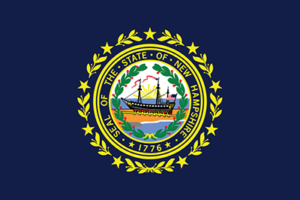 A gift that keeps on giving: Consumer purchases of gift cards were projected to top $200 billion in 2023, up from $87 billion in 2009. Bellwether Community Credit Union in Manchester, New Hampshire, is doubling down on its partnership with the New York-based advertising technology firm Prizeout to help its members earn cash back when they purchase gift cards through its digital banking platforms.
A gift that keeps on giving: Consumer purchases of gift cards were projected to top $200 billion in 2023, up from $87 billion in 2009. Bellwether Community Credit Union in Manchester, New Hampshire, is doubling down on its partnership with the New York-based advertising technology firm Prizeout to help its members earn cash back when they purchase gift cards through its digital banking platforms.
Consumer purchases of gift cards across the U.S. have continued to grow over the last 15 years. Data published last year by Statista Research forecasted that sales would reach roughly $204 billion in 2023 — up from $87 billion in 2009. Last year, PayPal and Affirm began working with gift card distributors on building out new product lines in the hopes of capitalizing on this growth.
Consumers pushing towards digital tools have helped drive the popularity of gift cards over the last few years, causing interested bank and credit union executives to adapt their strategies for marketing the products to buyers, said David Shipper, strategic advisor in Datos Insight’s retail banking and payments practice.
When the $600 million-assets Bellwether began its partnership with Prizeout in January of last year, the credit union’s leaders were in search of a product that would help distinguish their organization from other local players and provide members with more ways to safely purchase gift cards. Read more
Apr. 12, 2024 Stories
- If NY’s AG Is Right, Then We Are All Doing Something Seriously Wrong
- 2024 Hall of Leaders Spotlight: Marvin Cashman
- Washington DFI Releases a Bulletin on Succession Planning
- See How Louisiana Is Applying Its Hurricane Strategy to Cybersecurity Threats
- CFPB Comment to Illinois Joint Committee on Administrative Rules on the State’s Proposed Community Reinvestment Act Rules
If NY’s AG Is Right, Then We Are All Doing Something Seriously Wrong
 Credit unions in New York State could be on the hook for billions of dollars in additional unauthorized transfer costs.
Credit unions in New York State could be on the hook for billions of dollars in additional unauthorized transfer costs.
There’s been a lot of national news lately about pending court cases in New York City, but you may not have heard about the one that is important for credit unions on a national level.
Late last week, CitiBank filed a motion to dismiss the lawsuit. It makes a compelling argument that the AG’s argument amounts to a radical reinterpretation of existing law that would expose financial institutions to billions of dollars in losses and make the existing framework for wire transfers obsolete overnight. Although this decision would only apply to the Second Circuit, you don’t have to be Nostradamus to see that it would end up being litigated across the country.
In 1978, Congress passed the EFTA. Most importantly, the statute caps liability for unauthorized transfers involving a consumer account. However, even as it passed the law, Congress created a distinction between wire transfers, which are generally transfers using the Fed wire system and similar networks, and transactions covered by the EFTA. This distinction was absolutely critical since financial institutions did not want to be on the hook for the huge amount of money facilitated by the Fed on a daily basis. See 15 USC §1693a(7)(B). Read more
2024 Hall of Leaders Spotlight: Marvin Cashman
FORMER PRESIDENT/CEO, BOARD CHAIR Metro Credit Union

While leading Metro, Marvin opened new branches, completed numerous mergers, installed state of the art technology, and established a corporate headquarters in Chelsea, a location that is still home to Metro today.
Marvin, a respected leader in the credit union industry, served on a multitude of industry wide organizations including, Director and Chairman of the Board of the Massachusetts Share Insurance Corporation, a member of the Legislative Committee of the Massachusetts Credit Union League and Trustee and Clerk of the Credit Union Employee Retirement Association. Read more
Washington DFI Releases a Bulletin on Succession Planning
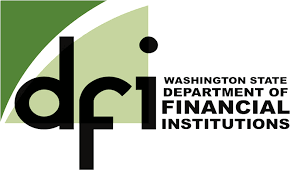 The credit union system continues to experience an ongoing trend of consolidation. Inadequate succession planning is often a reason for credit
The credit union system continues to experience an ongoing trend of consolidation. Inadequate succession planning is often a reason for credit
union consolidations, especially in smaller credit unions. Succession planning is critical to the continued operation of credit unions, especially those with senior leaders who may be retiring soon. A credit union’s failure to plan for the transition of its management and board officials could come with high costs. Conversely, good succession planning confers a variety of benefits, including ensuring organizational stability and viability over the long term.
Succession Planning for Key Management Positions
On recent examinations, examiners are identifying more credit unions with staffing shortages in key management positions because of planned retirements and an active job market. While it has always been important for credit union Boards of Directors and management teams to plan for the potential departure of Chief Executive Officers (CEOs), it is increasingly important to identify and plan for the potential departure of other key management positions. This trend was also identified by the National Credit Union Administration and succession planning was included in their 2023 Supervisory Priorities. Read more
See How Louisiana Is Applying Its Hurricane Strategy to Cybersecurity Threats
 Louisiana has seen its fair share of natural disasters over the years, with each event from 1980 to 2024 exceeding $1 billion in losses, according to the National Centers for Environmental Information. And, as Route Fifty reports, Louisiana is now grappling with a new disaster—cybersecurity attacks.
Louisiana has seen its fair share of natural disasters over the years, with each event from 1980 to 2024 exceeding $1 billion in losses, according to the National Centers for Environmental Information. And, as Route Fifty reports, Louisiana is now grappling with a new disaster—cybersecurity attacks.
Over the past five years, the state has experienced several debilitating cyberattacks, including a ransomware attack in 2019 that hit several public school systems, another that same year in New Orleans and an incident last year where five state colleges were notified that their networks were compromised. The costs to mitigate these attacks and recover from them is steadily rising. In FY 2020, the state paid $2.3 million to respond to cyberattacks, but by FY 2022, recovery costs had reached $14.4 million.
Louisiana’s solution is to apply to cyberattacks the same approach it uses when dealing with natural disasters. When disaster strikes, a host of state and local agencies spring into action and are supported by federal agencies, such as the Federal Emergency Management Administration. Read more
CFPB Comment to Illinois Joint Committee on Administrative Rules on the State’s Proposed Community Reinvestment Act Rules
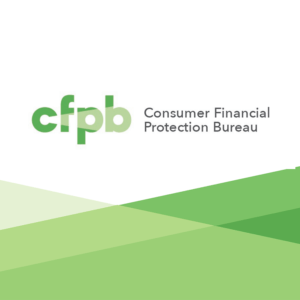 On behalf of the Consumer Financial Protection Bureau (CFPB), I am pleased to submit this comment regarding the Illinois Department of Financial and Professional Regulation’s (IDFPR’s) proposed rules for the state’s Community Reinvestment Act (CRA).
On behalf of the Consumer Financial Protection Bureau (CFPB), I am pleased to submit this comment regarding the Illinois Department of Financial and Professional Regulation’s (IDFPR’s) proposed rules for the state’s Community Reinvestment Act (CRA).
By way of background, I serve as the CFPB’s Deputy Director. I also serve as the CFPB’s representative on the Appraisal Subcommittee of the Federal Financial Institutions Examination Council. Since April 1, 2022, I have served as Chair of the Appraisal Subcommittee, which has recently held the fourth in a series of hearings on appraisal bias.
The CFPB’s work intersects with topics related to state Community Reinvestment Acts in a number of ways. The CFPB has conducted extensive analysis and research on access to credit across a range of products, including mortgage lending, small business lending, and others. One recent analysis of note is the CFPB’s report on state CRA laws, which highlighted the importance of these laws to ensure that financial institutions’ lending, services, and investment activities meet the credit needs of their communities.1 The report also identified how an institution’s compliance with federal consumer financial protection laws are incorporated into state CRA evaluations. Additionally, the CFPB has regulatory authority with respect to the nation’s mortgage lenders and supervisory and enforcement authority over many such lenders, both depository and non-depository, for compliance with applicable consumer protection laws. Read more
Apr. 5, 2024 Stories
 Congratulations to Gigi Hyland, Executive Director of the National Credit Union Foundation, on her upcoming retirement! Her heartfelt dedication and passion for helping others will be greatly missed.
Congratulations to Gigi Hyland, Executive Director of the National Credit Union Foundation, on her upcoming retirement! Her heartfelt dedication and passion for helping others will be greatly missed.
Opinion: For Colorado, Giving Banks the Option to Sell to Credit Unions Makes Good Economic Sense
 During this legislative session, the Colorado General Assembly would consider a sunset bill (House Bill 1351) for the Division of Banking and the State Banking Board that includes a recommendation from the Department of Regulatory Agencies, or DORA, that the banking code be amended to allow banks to sell their assets to credit unions. In an initial hearing, the House Business Affairs and Labor Committee agreed this makes sense for Coloradans, and the committee voted 7-4 Wednesday in favor of moving it forward.
During this legislative session, the Colorado General Assembly would consider a sunset bill (House Bill 1351) for the Division of Banking and the State Banking Board that includes a recommendation from the Department of Regulatory Agencies, or DORA, that the banking code be amended to allow banks to sell their assets to credit unions. In an initial hearing, the House Business Affairs and Labor Committee agreed this makes sense for Coloradans, and the committee voted 7-4 Wednesday in favor of moving it forward.
Lawmakers should support this change, which could benefit Coloradans by allowing more choice in the marketplace and allow more of the selling bank employees to keep their jobs and ensure local financial products and services remain available, especially in rural economies. In the 46 other states where banks can sell their assets to credit unions, the purchasing credit union was more likely than a bank buyer to keep the bank’s local branches open, retain its employees, and maintain a community-focused approach. Those are the primary reasons former CEOs of banks cited as their reasons for selling to credit unions in a survey by America’s Credit Unions.
Colorado’s credit unions serve 36% of the state’s population (2.5 million consumers), and their cooperative structure inherently holds them accountable to their members and their communities. The foundational “people helping people” philosophy is reflected in a strong focus on serving the underserved. Read more
Florida Cannabis Attorneys Prepare for More Work If Voters Approve Recreational Marijuana This Year
What You Need to Know
- The Florida Supreme Court approved a ballot initiative in November that would ask voters whether to legalize recreational marijuana.
- Because the state has a vertical system in place for cannabis operators, the initiative would benefit a select group of vendors.
Several Florida cannabis law practitioners are optimistic that the state’s voters will opt to legalize recreational marijuana in November after the state’s Supreme Court on Monday approved an amendment putting the measure on the ballot.
If the measure goes into effect, lawyers in the space are expecting volume to rise as more money and new operators are set to flood the Florida market following the initiative’s potential approval.
Back in 2016, Florida voters approved a ballot initiative to legalize medical marijuana for patients with a physician’s approval. Since then, the expansion of Florida’s medical cannabis industry has experienced massive financial gains, giving local sector lawyers a boost in volume as well. Read more
Credit Union to Buy Second Bank, Expand in Washington State
Sound Credit Union in Tacoma, Washington, agreed to acquire Washington Business Bank in Olympia.
The cash deal, expected to close in the fourth quarter, would bolster the $2.9 billion-asset credit union’s presence in Olympia and expand its commercial lending capabilities. The $105 million-asset Washington Business Bank provides deposit, lending, and cash management services to commercial clients as well as deposit products for retail consumers.
“Washington Business Bank has served as a cornerstone for local business owners for more than 20 years,” said Don Clark, president and CEO of Sound. “We look forward to providing these new members the same level of excellent service, an expanded suite of products and services, as well as all the benefits membership in a credit union brings to help their businesses and families thrive.”
Shareholders of Washington Business Bank would receive between $34-$36 in cash for each share of common stock they own, subject to certain adjustments at closing.
The combined institution would have approximately $3 billion of assets, $2.3 billion of loans and $2.5 billion of deposits. It would have more than 170,000 members and 27 branches throughout King, Pierce, Snohomish and Thurston counties of Washington. Read more
Mar. 29, 2024 Stories
Minnesota Commerce Dept. Issues Charter for Minnesota’s First Black-led Credit Union
An eight-year journey is paying off.
Arise Community Credit Union is the first new state-chartered credit union in Minnesota in 23 years and first Black-led credit union in the state’s history.
“If you know that you might be able to help solve the problem, you can’t walk away,” said Debra Hurston, executive director of the Association for Black Economic Power (ABEP).
The organization started in July 2016 in the wake of several police killings, including the death of Philando Castile. ABEP’s main goal was establishing a Black-led community credit union in north Minneapolis.
According to an analysis by the Federal Reserve Bank of Minneapolis using data from the Home Mortgage Disclosure Act, an applicant of color is more likely to have their application denied than a white applicant with the same income and credit score when applying for a conventional mortgage of the same size for a similar home.
“We decided to come up with a solution and that’s the credit union,” Hurston said.
Arise Community Credit Union is the first new state-chartered credit union in Minnesota in 23 years and the first Black-led credit union in the state’s history. Read more
Massachusetts Money Transmission Bill Protects Consumers, Levels Regulatory Playing Field
Payment Apps Get Regulated, Users Safeguarded at State Level
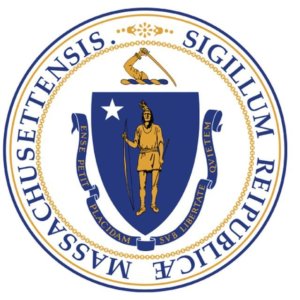 Venmo, PayPal, CashApp. Chances are you are using a money transmission platform like these, or someone you know is. In 2022, Massachusetts residents transmitted an astounding $22 billion in 172 million peer-to-peer payments across the state and nation – with zero state regulatory oversight.
Venmo, PayPal, CashApp. Chances are you are using a money transmission platform like these, or someone you know is. In 2022, Massachusetts residents transmitted an astounding $22 billion in 172 million peer-to-peer payments across the state and nation – with zero state regulatory oversight.
Those using these platforms may think their transactions are protected by a federal regulator such as the Federal Deposit Insurance Corp. or the Federal Reserve. They are not. The reality is that state financial regulators are the authority for this activity – but not here in Massachusetts.
The Massachusetts Division of Banks (DOB), where I serve as commissioner, currently licenses and examines companies which transmit money to foreign countries only (by statute). However, there is no regulatory oversight in the commonwealth for transfers of money between individuals or entities within the United States, commonly referred to as “domestic” money transmissions. This means, for example, that if your account is hacked or your money transfer is compromised in any way, you are not protected by state oversight and there is little that can be done to right the wrong.
It is worth noting that domestic transmission activity dwarfs the regulated space of foreign transmission, where just $10 billion was transmitted in 32 million transactions, according to NMLS call reports reviewed by DOB staff. So, in Massachusetts, the existing regulatory framework accounts for only 12 percent of the total transaction volume and just 27 percent of the total dollars transmitted. Read more
Tennessee Credit Unions Support Children’s Miracle Network Through CU4Kids
 Whether your child sticks a LEGO Olaf nose up their nose or perhaps needs ongoing pediatric health care, Tennesseans are fortunate to have five children’s hospitals throughout the state.
Whether your child sticks a LEGO Olaf nose up their nose or perhaps needs ongoing pediatric health care, Tennesseans are fortunate to have five children’s hospitals throughout the state.
Since 1996, credit unions across the nation have supported Children’s Miracle Network Hospitals through the Credit Unions for Kids (CU4Kids) program. Tennessee credit unions have been champions for the organization to help create a healthier, happier future for families and communities for years to come.
Tennessee credit unions and League-Chapters have already begun hosting events to support CU4Kids in 2024.
Throughout the fundraiser, Short said, “Members and team members repeatedly commented, ‘We are blessed to have available in our own community such a high level of care for our children.’”
Through USFCU team member donations, $1,000 was raised to benefit Niswonger Children’s Hospital. US Community Credit Union and Enbright Credit Union collaborate to host the CU4Kids Golf Classic, which is now in its 15th year. Read more
Mar. 21, 2024 Stories
Opinion: Overdraft Protection is Not a Junk Fee. It’s a Convenience for Informed Connecticut Consumers
 You’re out to dinner at a steakhouse with friends; you’ve been waiting for this meal all day, and you’re hungry. You see the calorie counts and prices on the menu and prepare to indulge and splurge. The server then informs you that there is a 50 percent service fee you previously didn’t know about. You find this to be ridiculous because, unlike the calorie count, the fee was 100% hidden prior to ordering your food. Pure junk.
You’re out to dinner at a steakhouse with friends; you’ve been waiting for this meal all day, and you’re hungry. You see the calorie counts and prices on the menu and prepare to indulge and splurge. The server then informs you that there is a 50 percent service fee you previously didn’t know about. You find this to be ridiculous because, unlike the calorie count, the fee was 100% hidden prior to ordering your food. Pure junk.
You begrudgingly pay the fee, knowing you’re actually buying nearly two entire days’ worth of calories in one meal. But as you pay, you realize you forgot to check your account balance, and now you’re overdrawn.
The silver lining? You added a service called overdraft protection to your checking account. That’s where, for a fee, your payments get honored even when you’re overdrawn. So you were able to pay for this meal without being embarrassed at dinner. That is decidedly not junk.
Where Strategy Meets Innovation
IC Credit Union in Massachusetts serves as an example for how credit unions must embrace new digital tools.
 It was our pleasure to have a stimulating conversation this month with Chris Hendry, president/CEO of IC Credit Union ($618 million, Fitchburg, Mass.). In addition to our firm having the honor to work with this exceptional organization on both governance and strategy, we are proud of this credit union’s achievements in focusing on the best interests of its 35,000 members. We also congratulate Chris on being named CEO of the Year in 2022 by the Cooperative Credit Union Association.
It was our pleasure to have a stimulating conversation this month with Chris Hendry, president/CEO of IC Credit Union ($618 million, Fitchburg, Mass.). In addition to our firm having the honor to work with this exceptional organization on both governance and strategy, we are proud of this credit union’s achievements in focusing on the best interests of its 35,000 members. We also congratulate Chris on being named CEO of the Year in 2022 by the Cooperative Credit Union Association.
As researched by Filene Research Institute in their second Credit Union Innovation Success Study conducted in partnership with the American Innovation Index, which measures innovation in the overall U.S. economy, its most recent survey from 2023, found that credit unions scored above most banks on the subject of innovation, contrary to most perceptions that they are falling behind. Credit unions experienced a slight increase in their innovation index scores and appeared to be doubling down on their innovation efforts.
CFPB Urges N.Y. Legislature to Enact UDAAP Prohibitions
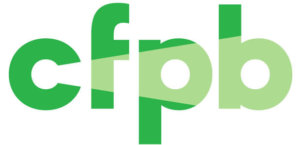 Even as House Republicans try to restrict the Consumer Financial Protection Bureau’s power to initiate enforcement actions based on “Unfair, Deceptive or Abusive Acts or Practices (UDAAP),” CFPB officials are urging the New York State Legislature to pass legislation giving state agencies those enforcement powers.
Even as House Republicans try to restrict the Consumer Financial Protection Bureau’s power to initiate enforcement actions based on “Unfair, Deceptive or Abusive Acts or Practices (UDAAP),” CFPB officials are urging the New York State Legislature to pass legislation giving state agencies those enforcement powers.
Consumer protection legislation has been introduced in both houses of the New York legislature and has been referred to committees for their consideration.
In legislative findings attached to the bill, supporters said that state law only protects consumers against deceptive acts, adding that other states have more expansive consumer protection statutes. “The State must not allow bad actors to peddle predatory products and services as long as they are clever enough not to get caught in a lie,” the findings state.
Mar. 15, 2024 Stories
AACUC Announces Future Fund Investment Program
 Inducts 2024 African American Credit Union Hall of Fame Honorees
Inducts 2024 African American Credit Union Hall of Fame Honorees
The African-American Credit Union Coalition (AACUC) announced a groundbreaking investment program – the Future Fund – during its African American Credit Union Hall of Fame, where five industry leaders were inducted at the Organization of American States Building in Washington, D.C. during the Governmental Affairs Conference.
The Future Fund is designed to propel the AACUC into a future of sustained impact and influence, especially in communities typically underserved in banking and finance, and is predicated on three consequential pillars:
- Internships and leadership development by building a succession pipeline for the credit union system, while securing the legacy of mentorship and professional development AACUC has established.
- Small credit union sustainability by ensuring the viability and vibrancy of the credit unions that are at greatest risk of mergers, acquisition and member attrition.
- Wealth building and community impact programs by supporting credit unions to establish and sustain initiatives that improve financial access, inclusion and well-being for communities of color. Read more
Element Credit Union CEO Linda Bodie Running for Seat in State’s House of Delegates
 Linda Bodie, who is well-known to many in credit unions as the CEO of Element Credit Union, is running for election to the West Virginia House of Delegates. Bodie is on the ballot to represent District 55. The Democratic primary is to be held May 14.
Linda Bodie, who is well-known to many in credit unions as the CEO of Element Credit Union, is running for election to the West Virginia House of Delegates. Bodie is on the ballot to represent District 55. The Democratic primary is to be held May 14.
Bodie said her campaign is built on four pillars:
- Transforming education for a brighter future
- A good economy with good paying jobs
- Financial wellness, literacy, and inclusion for every West Virginian
- Equality, equity, and wellness for all
Bodie was most recently inducted into America’s Credit Union Museum’s “Herstory” exhibit. She has also been profiled in CUToday.info for numerous other accomplishments, including pioneering new technologies and success at a smaller ($59.8-million) credit union, and for her work; for being named a Herb Wegner Memorial Award winner for Outstanding Achievement, and for her work with CU*Pride. Read more
MIDFLORIDA Credit Union Spreads Love for Reading with Gift of Reading Program
For the past 18 years, MIDFLORIDA Credit Union has been a beacon of positive influence. Through its Gift of Reading program, the credit union has distributed tens of thousands of books to schools across the state. This annual initiative, rooted in the credit union’s dedication to giving back, focuses on fostering a love for reading among young students.
The Gift of Reading program extends beyond the act of distributing books. It plays a pivotal role in growing future credit union members through youth savings accounts and promoting financial literacy. By actively participating in the educational journey of local students, MIDFLORIDA Credit Union not only enhances literacy but also contributes to the development of essential financial skills among the youth. MIDFLORIDA Credit Union’s Lisa Ashbury shared more with us about this impactful program. Read more
Mar. 8, 2024 Stories
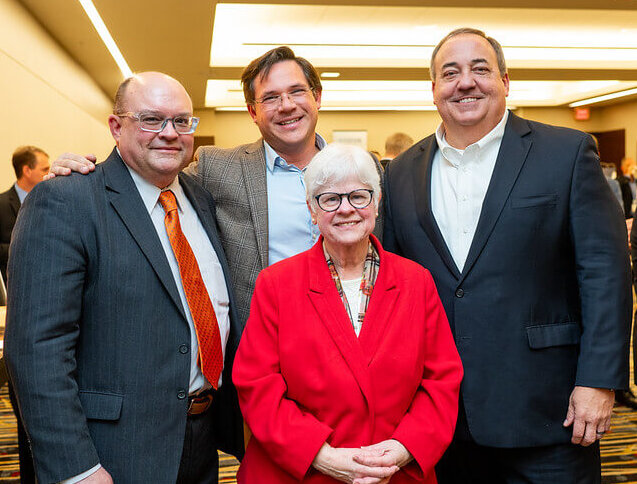 NASCUS Member Reception Photo Gallery Sneak Peek
NASCUS Member Reception Photo Gallery Sneak Peek
Thank you to everyone who joined us at the 2024 America’s Credit Unions GAC. We enjoyed having the opportunity to meet with you, identify challenges, and create solutions. The full gallery will be shared in next week’s NASCUS Report.
Credit Union Brand Lessons (inspired by the GAC)
The GAC is one of the biggest events in the credit union industry. It inspires passion and innovation, drawing credit union leaders from all across the country to experience it. Everyone’s there. “Are you going to the GAC?” is a pretty common question this time of year. So, it’s unsurprising that it holds excellent credit union brand lessons. But do those lessons come home with you? Too often, leaders get a “conference high” only to lose the zeal once their feet touch home territory. Here are a couple credit union brand lessons to remember once you’re back at work after an exciting week at the GAC.
CT’s Largest Credit Union Seeks Merger Deal with Hartford-Based CU
In the latest in a string of recent merger deals, Connecticut’s largest credit union is seeking to merge with a Hartford-based not-for-profit cooperative. East Hartford-based American Eagle Financial Credit Union has asked the state Department of Banking for permission to absorb Wellness Federal Credit Union, which was formerly known as Hartford Healthcare Federal Credit Union before it changed its name in 2018. The targeted merger date is May 21, 2024, pending state and federal regulatory approvals. Once approved, Wellness Federal’s two branches, members and employees will become part of American Eagle.
Mar. 1, 2024 Stories
California AG Issues Warning to State-Chartered Banks and Credit Unions On “Surprise Overdraft” And Returned Deposit Item Fees
 On February 22, 2024, California Attorney General Rob Bonta issued letters (the “AG Letter”) to California’s 197 state-chartered banks and credit unions warning that overdraft and returned deposited item fees may violate California’s Unfair Competition Law (UCL) and the federal Consumer Financial Protection Act (CFPA). The AG Letter encourages the institutions to review their practices and policies regarding: “(1) surprise overdraft fees, which are assessed even when a consumer cannot reasonably anticipate that a debit or checking transaction will overdraw their account; and (2) returned deposited item fees, which are assessed when a consumer deposits a check that is returned, even when the consumer has no knowledge of or control over the circumstances that caused the check to be returned.”
On February 22, 2024, California Attorney General Rob Bonta issued letters (the “AG Letter”) to California’s 197 state-chartered banks and credit unions warning that overdraft and returned deposited item fees may violate California’s Unfair Competition Law (UCL) and the federal Consumer Financial Protection Act (CFPA). The AG Letter encourages the institutions to review their practices and policies regarding: “(1) surprise overdraft fees, which are assessed even when a consumer cannot reasonably anticipate that a debit or checking transaction will overdraw their account; and (2) returned deposited item fees, which are assessed when a consumer deposits a check that is returned, even when the consumer has no knowledge of or control over the circumstances that caused the check to be returned.”
California’s UCL prohibits unfair, unlawful, and fraudulent business acts and practices. A business act or practice is unfair if the gravity of the harm to the alleged victim outweighs the utility of the defendant’s conduct. Actions under the UCL for any noncompliance with the AG Letter may have significant consequences to small institutions. The UCL permits any person to bring a claim for specific or preventative relief. The UCL sets forth a civil penalty up to $2,500 for each violation in an action brought by Attorney General, District Attorney, County Counsel, and City Attorneys. The UCL further states “[i]n assessing the amount of the civil penalty, the court shall consider any one or more of the relevant circumstances presented by any of the parties to the case, including, but not limited to, the following: the nature and seriousness of the misconduct, the number of violations, the persistence of the misconduct, the length of time over which the misconduct occurred, the willfulness of the defendant’s misconduct, and the defendant’s assets, liabilities, and net worth.”
Congratulations to President and CEO of California and Nevada Credit Union Leagues Diana Dykstra on her upcoming retirement! As a pioneer in the industry, her dedication and impact will be felt for years to come.
California/Nevada Leagues CEO, WOCCU Chair (and More) Diana Dykstra Announces Retirement Date
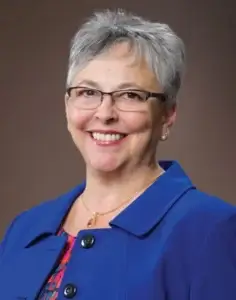 Diana Dykstra, president and CEO of the California and Nevada Credit Union Leagues, has announced plans to retire later this year after more than four decades of financial services leadership. Dykstra’s retirement date is set for July 1.
Diana Dykstra, president and CEO of the California and Nevada Credit Union Leagues, has announced plans to retire later this year after more than four decades of financial services leadership. Dykstra’s retirement date is set for July 1.
Dykstra has had one of the most high-profile careers in credit unions over the past 40 years. Prior to leading the California and Nevada Credit Union Leagues for the past 14 years, Dykstra served as president and CEO of San Francisco Fire Credit Union, president and CEO of CoastHills FCU, senior vice president at Patelco Credit Union, and senior vice president at Golden 1 Credit Union, all in California.
CA and NV Leagues and Utah CU Association Form Alliance
 The California and Nevada Credit Union Leagues, together with the Utah Credit Union Association, announced today they have entered into an agreement to form a joint association support services organization.
The California and Nevada Credit Union Leagues, together with the Utah Credit Union Association, announced today they have entered into an agreement to form a joint association support services organization.
While each state entity will maintain governance of their respective advocacy operations, non-advocacy related services and back-office functions will be done by the new entity born of the partnership. Leadership from the three states agree the operating model maximizes efficiency while preserving state leagues’ identities, which is critical to advocacy efforts.
This Virginia Bank Wants to Rewrite the Rules for Banking as a Service
 MainStreet Bancshares in Fairfax, Virginia, is taking a do-it-yourself approach to technology at a time when partnerships between banks and fintech firms are getting more complicated.
MainStreet Bancshares in Fairfax, Virginia, is taking a do-it-yourself approach to technology at a time when partnerships between banks and fintech firms are getting more complicated.
The $2 billion-asset MainStreet has trumpeted Avenu, its banking-as-a-service subsidiary, as a potential game changer since introducing it more than two years ago. At year-end 2023, MainStreet reported $35.3 million of Avenu deposits, $33.5 million of which were non-interest-bearing. MainStreet is forecasting Avenu will reach its projected breakeven point, $225 million of total deposits, this year.
As predictions go, that’s bold. If Avenu hits the target, it will have grown deposits more than 530%. The lion’s share of those deposits, moreover, would be non-interest-bearing, helping set MainStreet apart from an industry grappling with increased funding costs. It could also establish the 2-year-old subsidiary as an alternative to the way many banks have pursued embedded banking, through so-called middleware.
Feb. 23, 2024 Stories
 Dietrich Kuhlmann to Assume the Role of Navy Federal Credit Union CEO
Dietrich Kuhlmann to Assume the Role of Navy Federal Credit Union CEO
Navy Federal Credit Union today announced that Dietrich Kuhlmann will become its next president and chief executive officer on March 1, 2024. He will replace outgoing CEO Mary McDuffie, who announced her retirement in September of last year. Kuhlmann joined Navy Federal in 2019 after retiring from the United States Navy as a rear admiral and has spent the past two years as the credit union’s chief operating officer.
“Following the announcement of Mary McDuffie’s retirement last September, the Board undertook a months-long, rigorous process to identify the best leader for our credit union,” said Ed Cochrane, chairman of the Board of Directors at Navy Federal, which oversaw its CEO selection process. “Dietrich has shown an unwavering commitment to both his country and to his fellow men and women in uniform throughout his extensive career. These experiences make him the ideal person to lead this institution, and we know he will continue to serve our members superbly in the years ahead…”
How Much Does It Cost if a Credit Card Is Used? New NY Law Requires Disclosure
Under a new state law, businesses in New York are now required to clearly post exactly how much their products will cost if customers pay with a credit card, under a new state law that just took effect. The consumer protection law means stores can no longer post a sign on a door and at the register stating that credit card purchases will be subject to surcharges, according to the Associated Press. Instead, they will either need to list the higher credit card price next to a lower cash price, or they can just change the cost of items to the credit card price for everyone, the AP added…
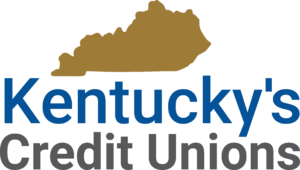 Kentucky Credit Union League Announces Rebranding, Changes Name to Kentucky’s Credit Unions
Kentucky Credit Union League Announces Rebranding, Changes Name to Kentucky’s Credit Unions
As part of an extensive rebranding initiative, the Kentucky Credit Union League has announced a fresh identity, complete with a new name and logo. On January 26, 2024, the League Board of Directors officially approved the rebrand to “Kentucky’s Credit Unions,” in line with their mission to promote unity and provide outstanding service to credit unions throughout the state. This rebrand follows the merger of the Credit Union National Association (CUNA) and the National Association of Federal-Insured Credit Unions into America’s Credit Unions…
Beware of Fictitious CDFI Fund Social Media Accounts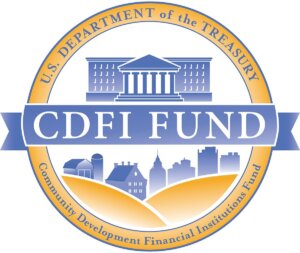
The U.S. Department of the Treasury’s Community Development Financial Institutions Fund (CDFI Fund) would like to make the public aware of fraudulent social media profiles, email accounts, and phone numbers that attempt to impersonate or otherwise associate themselves with the CDFI Fund. Although the precise platforms and messages vary, these imposters provide false CDFI Fund employee and contact information, false links to a website alleged to be the CDFI Fund website, and a false telephone number. One social media profile scam identifies a nonexistent grant program, tells the public that it can receive free federal government grant money, and even displays a fictitious monetary disbursement. Therefore, please be cautious when clicking on links attributed to the CDFI Fund…
Feb. 8, 2024 Stories
Why Credit Unions Aren’t Automatically Picking FedNow
 In making its pitch to credit unions, the RTP network — which is backed by banks — has to overcome a long-standing rivalry between the two types of financial institutions. But it seems to be doing just that. A growing number of credit unions are adding instant payments to their products and services, and some of them are choosing to use both — rather than either one — of the leading platforms. The Federal Reserve’s instant payments network, FedNow, launched in July and already has enrolled more than 300 financial institutions, including more than 50 credit unions. Read more
In making its pitch to credit unions, the RTP network — which is backed by banks — has to overcome a long-standing rivalry between the two types of financial institutions. But it seems to be doing just that. A growing number of credit unions are adding instant payments to their products and services, and some of them are choosing to use both — rather than either one — of the leading platforms. The Federal Reserve’s instant payments network, FedNow, launched in July and already has enrolled more than 300 financial institutions, including more than 50 credit unions. Read more
In Oklahoma: WEOKIE Discusses Value of Well-Priced Overdraft
One credit union that has markedly dropped its overdraft fee is contending that much of the bad press CUs and ODs are getting is unwarranted, and with many more members now using the service regularly, it is proof of the value of a well-priced overdraft. In August of 2021, the $1.5-billion WEOKIE Federal CU reduced its overdraft charge from $27.50 to $15. Read more
Newsweek: America’s Best Regional Banks and Credit Unions 2024
 Regional banks and credit unions play a pivotal role in the financial fabric of communities nationwide. Unlike their larger counterparts, these institutions are deeply rooted in local economies, understanding the unique needs of the people they serve. The community engagement of credit unions extends beyond financial transactions. Many credit unions actively contribute to local initiatives, reinforcing their role as integral community partners. Read more
Regional banks and credit unions play a pivotal role in the financial fabric of communities nationwide. Unlike their larger counterparts, these institutions are deeply rooted in local economies, understanding the unique needs of the people they serve. The community engagement of credit unions extends beyond financial transactions. Many credit unions actively contribute to local initiatives, reinforcing their role as integral community partners. Read more
Corporate Central Celebrates Remarkable Achievement as 49 Employees Attain the CCUFC Designation
Corporate Central is proud to announce that 49 dedicated employees successfully earned the prestigious Certified Credit Union Financial Counselor (CCUFC) designation through the Credit Union National Association (CUNA) in 2023. This remarkable achievement comes as a result of participating in the CUNA Financial Counseling Certification Program (FiCEP). The program includes a series of webinars; learning and understanding the content of the 33-chapter, 5th Edition CUNA FiCEP book; and passing a 2-hour proctored exam. Read more
Feb. 2, 2024 Stories
Georgia on the Mind: An Explainer for Payments Companies Considering the Merchant Acquirer Limited Purpose Bank Charter
 In January 2024, one of the largest U.S. non-bank merchant acquirers announced that it is pursuing a special-purpose bank charter developed by Georgia. Although the “merchant acquirer limited purpose bank” (MALPB) has been a charter option for non-bank payments companies for over a decade, non-banks have not been able to fully leverage it because card networks have not allowed them to be direct participants. That prohibition appears to be changing in light of this new application.
In January 2024, one of the largest U.S. non-bank merchant acquirers announced that it is pursuing a special-purpose bank charter developed by Georgia. Although the “merchant acquirer limited purpose bank” (MALPB) has been a charter option for non-bank payments companies for over a decade, non-banks have not been able to fully leverage it because card networks have not allowed them to be direct participants. That prohibition appears to be changing in light of this new application.
As a MALPB, a non-bank company can authorize, settle, and clear payments transactions for merchants and, importantly, enter card networks directly rather than through a bank sponsor. In doing so, a MALPB can own the transactions from end to end and eliminate various third-party risks. But this option also comes at significant costs and with compliance obligations.
This alert discusses some of the most important issues for non-bank payments companies considering the MALPB charter.
Read the full article authored by Venable LLP here.
MN Rep Gives Credit Unions a Shout-Out from House Floor

Rep. Angie Craig (D-MN) spoke on the House floor this week about the role credit unions play in their communities.
She highlighted the work of the 86 credit unions in Minnesota, noting it is estimated that credit unions in the state provided more than $227 million in direct financial benefit. She added that credit unions play a vital role in her district, including their support for local athletic programs, veterans’ organizations, and community events, America’s Credit Unions reported.
Read the full article from CUToday here
Business Coalition Sues California Over Nation-Leading Climate Disclosure Laws
 Thousands of large businesses operating in the state would be required to disclose their carbon footprint and climate-related financial risks under the laws. The U.S. Chamber of Commerce and American Farm Bureau Federation led a coalition of business organizations in filing a lawsuit on Tuesday aiming to block California’s two landmark corporate climate disclosure laws.
Thousands of large businesses operating in the state would be required to disclose their carbon footprint and climate-related financial risks under the laws. The U.S. Chamber of Commerce and American Farm Bureau Federation led a coalition of business organizations in filing a lawsuit on Tuesday aiming to block California’s two landmark corporate climate disclosure laws.
The measures signed into law by Gov. Gavin Newsom last year would “impermissibly compel thousands of businesses to make costly, burdensome, and politically fraught statements” about their operations around the world, the business groups said in their complaint filed in U.S. District Court for the Central District of California.
The plaintiffs are seeking a ruling blocking implementation of the laws, SB253 and SB261, on grounds that they violate the First Amendment by compelling speech on a “controversial” issue and that California is attempting to act as a de facto national emissions regulator. The Wall Street Journal was first to report the lawsuit.
Thousands of large businesses operating in the state will be required to disclose their carbon footprint and climate-related financial risks under the two first-in-the-nation laws. Notably, SB253 also requires companies to disclose Scope 3 emissions generated throughout their value chains.
Read the full article in Politico here
Advia Credit Union Excited for Future Growth in Illinois
 Advia is excited to announce growth in Illinois – bringing additional opportunities to members in northeastern Illinois. The Board of Directors of Advia Credit Union announced that it has signed a definitive agreement to acquire NorthSide Community Bank, headquartered in Gurnee, Illinois, with branches in Gurnee, Mundelein, Niles and Riverwoods.
Advia is excited to announce growth in Illinois – bringing additional opportunities to members in northeastern Illinois. The Board of Directors of Advia Credit Union announced that it has signed a definitive agreement to acquire NorthSide Community Bank, headquartered in Gurnee, Illinois, with branches in Gurnee, Mundelein, Niles and Riverwoods.
With this acquisition, Advia will serve approximately 200,000 members with thirty-two (32) branches in Michigan, Illinois, and Wisconsin. In Illinois, there will be a total of seven (7) branches in Gurnee, Mundelein, Niles, Riverwoods, Crystal Lake, Cary, and Woodstock. In Wisconsin, Advia has six (6) branches throughout Beloit, Janesville, Williams Bay, Elkhorn, and Silver Lake. Advia also has a total of twelve (12) branches in West Michigan and another seven (7) in Eastern Michigan.
The transaction, which is subject to regulatory and shareholder approval, and is expected to be completed in the third quarter of 2024, further strengthens Advia’s position within its service area in Illinois, Wisconsin, and Michigan. Currently ranked in the top 3 percent in the nation among credit unions in terms of asset size, Advia will have over $3 Billion in assets and over 550 employees. Founded in 1935, Advia has been serving members for nearly 90 years.
Read the full press release here
Jan. 26, 2024 Stories
Congratulations to Point West Credit Union and NASCUS Credit Union Advisory Council Member Amy Nelson, named one of Inclusiv’s Annie Vamper Helping Hands Award Winners
 Amy Nelson is CEO of Point West Credit Union, overseeing the $110 million financial institution serving 14 Oregon counties. Amy’s commitment to advancing financial inclusion for historically marginalized communities has transformed Point West into a beacon of positive change for underserved markets. Her initiatives include expanding lending opportunities for ITIN borrowers and microbusiness owners, earning Low Income (LID), Community Development Financial Institution (CDFI), and ‘Juntos Avanzamos’ designations, and modernizing the cooperative’s community charter. Amy and Point West received industry awards, including the Innovation and Impact Award (Northwest area); CUHeroes, and more. Beyond Point West, she actively engages in financial empowerment, credit union regulatory and political advocacy through GoWest Credit Union Association and the National Association of State Credit Union Supervisors (NASCUS).
Amy Nelson is CEO of Point West Credit Union, overseeing the $110 million financial institution serving 14 Oregon counties. Amy’s commitment to advancing financial inclusion for historically marginalized communities has transformed Point West into a beacon of positive change for underserved markets. Her initiatives include expanding lending opportunities for ITIN borrowers and microbusiness owners, earning Low Income (LID), Community Development Financial Institution (CDFI), and ‘Juntos Avanzamos’ designations, and modernizing the cooperative’s community charter. Amy and Point West received industry awards, including the Innovation and Impact Award (Northwest area); CUHeroes, and more. Beyond Point West, she actively engages in financial empowerment, credit union regulatory and political advocacy through GoWest Credit Union Association and the National Association of State Credit Union Supervisors (NASCUS).
“Annie Vamper’s legacy inspires us to continue dedicating our efforts to serving low- and moderate-income individuals,” Nelson says. “True community impact is achieved through the combined strength of passionate teams, supportive credit union and community partners like our local non-profits, Inclusiv and GoWest Association, and our shared commitment to advancing financial wellness for all. This collaborative approach results in a collective impact which unites organizations under the shared mission of community development.”
This year’s awardees are Melissa Marquez, CEO, Genesee Co-op FCU, Amy Nelson, CEO, Point West CU and Kathya Pierre, CEO, 1199 SEIU FCU. Inclusiv is delighted to honor the legacy of Annie Vamper through these incredible CDCU trailblazers. Read more
Banks Fight Back Against ‘Right to Gripe’ Suits
Bank of America and U.S. Bank are fighting back against lawsuits alleging the two banks — in their terms of service — violated a California law that ensures customers have the right to air their grievances publicly.
The suits are part of a wave of recently filed cases that will likely help establish the scope of corporate liability under California’s so-called “Right to Gripe” law. The goal of the law is to protect consumers’ ability to complain online about their experiences with specific companies without the threat of retribution. Read more
Silver State Schools Credit Union and The People Over Profit Foundation Announce 2024 Scholarship Program for College-Bound Nevada High School Seniors
 Silver State Schools Credit Union (SSSCU) is now accepting applications for the 2024 People Over Profit (POP) Foundation Scholarships for Nevada high school seniors. Since 1989, more than $1,100,000 in scholarships have been awarded to outstanding students to use toward higher education tuition.
Silver State Schools Credit Union (SSSCU) is now accepting applications for the 2024 People Over Profit (POP) Foundation Scholarships for Nevada high school seniors. Since 1989, more than $1,100,000 in scholarships have been awarded to outstanding students to use toward higher education tuition.Summit Credit Union Announces Success with Join the Huddle Campaign
January 25, 2024 – Summit Credit Union is pleased to announce the success of their fourth annual “Join the Huddle” campaign. In the months of August through December 2023, Summit Credit Union set-up an online auction for tickets to Carolina Panthers’ regular season home games. Each winning bidder was given the choice among five pre-selected charities for where to donate their bid funds. These charities included the Hamilton Scholarship Fund, Susan G. Komen Breast Cancer Foundation, Children’s Miracle Network Hospitals/Duke Children’s Hospital, Backpack Beginnings, and Wounded Warrior Project.
Summit Credit Union also held a “Summit Wears Pink Week” pledge drive in October where staff donated money to wear pink with jeans for the week. Staff raised $485 pledged solely to the Susan G. Komen Breast Cancer Foundation.
In total, Summit Credit Union raised over $4,000 for the Hamilton Scholarship Fund, Susan G. Komen Breast Cancer Foundation, Wounded Warrior Project, Children’s Miracle Network Hospitals/Duke Children’s Hospital, and BackPack Beginnings. 100% of pledges and auction proceeds will be donated to the five charities in January 2024. Altogether, Summit Credit Union’s Join the Huddle campaign has raised close to $15,000 for charity.
“The continued success of our Join the Huddle campaign is a testament to our commitment of giving back to the communities we serve, and we eagerly anticipate the positive outcomes the next charity fundraiser will bring,” stated Sam Whitehurst, President and CEO of Summit Credit Union. “Keep Pounding!”
 Monday, May 6, 2024, is the second year of observance of Moyamoya Disease Awareness Day in Massachusetts, and Credit Unions Kids at Heart®, a Massachusetts-based 501(c)(3) charitable organization, and its participating credit unions will again organize awareness-raising activities throughout the Commonwealth.
Monday, May 6, 2024, is the second year of observance of Moyamoya Disease Awareness Day in Massachusetts, and Credit Unions Kids at Heart®, a Massachusetts-based 501(c)(3) charitable organization, and its participating credit unions will again organize awareness-raising activities throughout the Commonwealth.